Devon Trevarrow Flaherty's Blog, page 26
August 29, 2022
Book Review: Midnight in the Garden of Good and Evil
 Image from Amazon.com
Image from Amazon.comWhen I first started reading this book, I was somewhat enamored. I just didn’t expect it to be so engaging and there was a competent playfulness that I was really enjoying. But as I read further and further, I got a tad bored. In a book that often feels more like vignettes than a novel (true crime novel, I guess), I was done with the same ol’ characters and story and I wanted it to end so I could stand back and admire what I had just read. Instead, it kept going, slowly sucking the enjoyment out of it. But that makes it sound all bad, and certainly it was not.
I am trying not to buy any new books this year. I have plenty of books on my shelves that I still need to read. However, I keep finding excuses to buy new books and shoehorn them in on my TBR. I was vacationing with a friend in Beaufort, South Carolina when we took a day trip to Savannah. Now, it was actually so hot that we couldn’t really enjoy our day to the fullest, but I was still blown away by Savannah. The town is not at all my speed for living, but for visiting: I felt like I had either stepped back in time or onto a movie set. Savannah looks, feels and is surprising at every turn and I will be returning to plumb it more thoroughly. As for that one scorching day, we managed—per my request—to find a bookstore open on a Sunday afternoon, E. Shaver. I wandered the meandering bookstore (it’s a great one) before landing at their desk. I said, “I have a strange question and a predictable question. First, do you have any socks?” (I was having a wardrobe malfunction that was giving me a blister,) “and second, where are your copies of Midnight in the Garden of Good and Evil?” The first question was followed by a hobble through the store with a bookseller guide where we found—to both of our surprise—a basket of bibliophile socks. As for the second question, it was addressed first when the gal who was closest to me reached behind her practically without even looking to a long row of copies: “Hardback or paperback?”
 Image credit goes to me, 2022
Image credit goes to me, 2022I was not the first one to buy Midnight in the Garden of Good and Evil while in Savannah. I won’t be the last.
Midnight in the Garden of Good and Evil by John Berendt is a famous book. (It was a New York Times best-seller for a very long run.) It was already in my TBR (though later I realized that it might have been there because someone gave me a copy, ahem) and on my radar, so when my friend suggested reading it to better acquaint myself with Savannah and coastal SC, I went ahead and took that bait. It is non-fiction, basically, or a non-fiction novel, a sort of frank, wide-eyed and laid back foray into a curious, almost fantastical world. These are real people (some names changed to protect identity), real places, and real events. Berendt says that he fictionalized or exaggerated himself until about half-way through the book. Perhaps related, I don’t know, but it is widely known that the sequence of events have been changed. Still, overwhelmingly nonfiction (although some of the more disparaged characters have said otherwise), just written in novel form.
Really, the book is about Savannah and its people. It contains quite a bit of history and a whole lot of character. Savannah breathes in the pages of the book. The actual plot is the coming to town of a New York City writer (the POV narrator, Berendt himself with some embellishment), his inserting himself into Savannah society, and all that he discovers which lands him in the middle of a series of murder trials. People also claim the book is about the murder of a male prostitute by one of the wealthy, social elite of Savannah. It’s both, but it’s mostly, as I said, about Savannah herself. And Berendt, while clearly in love with the place and people, really digs up some slime with the silt. I couldn’t help but wonder if Savannahians would be proud of the way they are portrayed in this book. Despite the racist and classist and sexist underbelly as well as all the drugs, sex, and voodoo grit, I think it entirely possible they are happy with it. (They definitely seem to use it in tourism, unlike, say, Scranton, PA and The Office.) I mean, Savannah’s glamour is completely of the strange and the people seem to wallow in it. Happily. Still, many have accused Berendt of embellishing (and making up) a whole lot more than he claims he did, which could result from either bad reporting or from people who are irritated that their dirty laundry has been aired on the best-sellers’ list. Or it’s the nature of nonfiction novels. I’m not going to spend more time picking apart the he-said, she-said of it.
Yes, it is gritty and shady and somewhat of an expose, and yes, it does go on too long from where I sat, and yes, I find voodoo something to cut a wide berth around, but I liked my time in Midnight in the Garden of Good and Evil, for better or just a little worse. It was pretty fascinating and well-written (if a tad unconventional) and I would recommend it, especially if you are going to be visiting coastal South Carolina or Georgia, and especially Savannah. It would be one of those perfect destination reads, which I am certainly not the first to discover. I would also recommend it for something a little different and slightly historical (like the 90s) for people who enjoy true crime. I believe that’s actually a lot of people, as a know a number of true crime aficionados myself.
MOVIE (1997)
 Image from IMDB.com
Image from IMDB.comI hadn’t realized this star-studded movie exists because I was a teenager at the time of Midnight’s popularity and also this movie’s release. These were not the sort of things that seniors in high school were reading or watching. It was probably really big for the young-adult-to-middle-age group. Starring John Cusack and Kevin Spacey as well as Jude Law and some others you might recognize, the movie no doubt drew an audience but also took great liberties with the story. It has some of the bones of the story, but it is sped up (like warp speed on the timeline) and streamlined so that it is sort of recognizable. It is fun to put places and faces on the characters and, well, I was happy to kind of get a few things straight (since I had mixed up three of the male characters repeatedly), but I did find the movie to be, well, blurry (thanks Prime), oddly acted, and not really of the same tone as the book. It almost felt spoofy and missed the real presence of Savannah in all but a drive-by. It’s a fine movie to watch, interesting after the book, but more of a rough adaptation than a recreation. Fun fact: The Lady Chablis is played by the Lady Chablis, and it (along with the book) made her famous.
QUOTES
“’You mustn’t be taken in by the moonlight and magnolias. There’s more to Savannah than that. Things can get very murky.’ Williams stroked his cat and tapped another ask into the ashtray” (p10).
“I would inquire, observe, and poke around whenever my curiosity led me or wherever I was invited. I would presume nothing. I would take notes” (p36).
“People think you’re writing an expose about Savannah, so they’re a little wary of you. You don’t need to fret about that, though. Secretly they all hope you’ll put them in your book” (p48).
“Money is ammunition, and as long as I have some I’ll use it” (p296).
“I left Mercer House that afternoon with the uncomfortable feeling that I knew more than I wanted to know” (p348).
August 24, 2022
Use Your Gut
I have begun a new season in my life. On New Year’s Day this year (2022) I looked out over the panorama of the coming year and I could already see that it was going to be a year of change. Like a lot of change, big changes. What I didn’t know was that there was one unforeseen change—a biggie—that I didn’t know about. So, change was brewing, in even bigger ways than I anticipated, and I braced for them the best I could. As for the biggest changes, we have left our church of twenty years (in the spring), found a new church (slooowly entering the water), I have retired from teaching co-op (spring), I have wrapped up home school (beginning of the summer) after seven years, and I have sent my homeschooler off to a charter high school with his sister. Freshman and senior. These are the biggies and half of them led to another biggie: I have started working fulltime from home as a writer. Again, yes. It has been seven years since I set my career on the back burner and here I go again.
I was going to get a little journalistic and give you a schedule of my day (which will have to change periodically or my ADHD will send me flying head-first out the window). I will do that, but this morning I have something a little different on my mind. As someone with ADHD, I have considered medication for many, many years. This year I have tried a couple and I am currently taking one on a regular basis. (Another change. Oh, there are several more.) This coupled with the enormous stress of a post-Pandemic America running under one of the biggest years of change I have ever had means that I am dealing with all the feels and trying to bear up under a lot of stress. It also means that I am having to ask myself if I am acting like me but also knowing that of course I’m not quite acting like me right this moment, in the cocoon I’ve built around all the tender places that have been exposed by sending my buddy off to school, etc.
So this: use your gut. I was working out this morning (another change: I had some Pandemic weight to lose) and I was trying to use my abdominal muscles while doing uppercuts. (I would not get in front of one of my uppercuts right now, if I were you.) I thought, “Use your gut.” And, thanks to all the things running through my mind, I thought, much more vastly, “Yeah! Use your GUT!”
It’s difficult when you are dealing with a bunch of stuff to be passionate about your life or to enjoy it. Change is stress and stress can lead to survival mode. I have tried to be understanding and give myself space for this survival mode. But there also comes a point where we need to leave the shock behind and get back to feeling life and living it fully. To be honest, there has been so much going on for years both in my life and in our world that I don’t know how much I have been feeling life and living it fully. (I have been living it.) I do know that if I want to be my best writer, I have to do those things. I have to use my gut to write, have to use passion and intuition to be a creator. But that seems, although metaphorically visceral, abstract. How can I use my gut? Thanks for asking.
Well, first off, I want to say that I also think, even before the passion, that I need peace. I believe that peace comes from a place of acceptance or, as I would put it coming from my worldview, surrender. Humility. A sense of perspective. A place to receive love and security. I’ve done some CBT this year, some group therapy, some really intentional friend time, etc. I am working on it, as always. But now I also want to jump back into my life and seize the day. I want to do art. So these are the things that the “gut” needs to be activated:
Creativity. Wait? Aren’t we trying to access our creativity? Yes. And I do mean to actually do creative things, but I also mean to take in creative things and preferably not creative junk food. One of the things that most gets my juices flowing is music, loud and with me alone and focused on it. Go to a movie or a play or a dance performance. Read a novel, a story, a poem. Look at paintings, sculpture, architecture, fashion, something new or avant garde. And absolutely enroll yourself in a pottery class or a ballet group or just pull out a sketchpad or paint your tray ceiling with the moon and stars. Sew some curtains or do textile art, furnish a doll house, make a model, color. Doing something creative besides writing (or whatever your creative job is) can feed into your writing, which I have already blogged about HERE. But mostly I mean you need some sort of diet of creative things—creative input—to inspire you to creative output.Presence. It has become increasingly easy for us to go through our days without being present in them. With computers in our pockets, distractions at every turn, and the modern privilege of not spending our days either gathering or farming just to survive, we can just check out. Perhaps this is why there is so much talk about “being present.” As much as I cringe at the buzz of the term and even the concept, it is an uphill battle to stay present in our lives, but we need to be present to be creative. As contrary as it seems, I often use visualization to bring me back to the moment (like me laying back into a giant palm or two giant hands presenting me with whatever the moment has to offer me in my immediate surroundings/reality). I also use mantras, like “Enjoy more.” (That was one of my former pastor’s favorites.) Using your senses is a way to be present, but we’ll get to that in a moment. Putting down the damn screens is another way to be present. Looking at people in the eyes, another one. Opening your own eyes, another.Gratitude. I have blogged before (I think) about a game my husband and I have played over the years when we realize we have become especially crotchety. We go back and forth, listing things that we are thankful for, from the small and even silly (distilled water) to the big stuff (each other, each of our children). This is one of many ways you can seek gratitude. You could also journal gratitude, say “thank you” more, do some of that therapy or whatever to stop being so negative or complaining. Make yourself “soft” toward the world; that’s one my yoga instructor says. Why do you need to have gratitude to be creative? There is no way I am going to produce my best stuff, really get in the “gut” zone, unless I have some positivity going. For me, a lot of my work is about redemption on some level, but it’s more than that. I’m not going to function properly if I’m knotted up, turned in on myself. Gratitude opens us up, opens our minds and emotions up. Don’t look at me, just look at all the wisdom literature of the world.Engagement. I was almost talking about engagement with the other three, but I want to be specific here. Yes, you need to actually get up off the couch on which you are binging and eating potato chips (I said to myself many times), but you also need to specifically engage in these three areas: body, nature, and adventure. I am sedentary by nature (which is weird, because I also have a lot of mental and sometimes even physical movement). I write and read and enjoy a real long lounge session. I don’t go in for most sports. Physical touch isn’t my love language (which I’m starting to think is just a form of brokeness and can be healed). However, I have been really surprised as I reached middle age and started to work out, that physical activity taps into a powerful part of my emotions, mind, and even soul. Perhaps because of the old, Western philosophical idea of dualism that was adopted by much of the Church, I believe most modern Americans are missing out on important connections between our bodies and the rest of us. What I know is this: jogging, punching, dancing, biking: these things take an emotion, thought, or experience I am having and ratchet it up several levels. As simple as waving around your arms when you have a strong feeling of excitement or rolling on the floor in grief and as easily begun as aerobics in your family room, we need to engage our bodies to be fully engaged and fully creative. We also need nature (a walk? Notice the breeze, stick your toes in the water) and adventure. I love the word adventure, but what I mean is that you have to do things that scare you, you have to put your foot on your own butt (it can be done) and shove yourself off some sort of cliff into the unknown, the unsure. To reach full creative potential, to really feel life and then enjoy it, you have to do challenging things, which is what I call adventure.Maybe this blog is not that helpful. Who needs another thing to do, right? Another thing to put on their checklist: have a diet of creative things, be present, have gratitude, engage with your body, nature, and challenges. What I said is a little vague, too, because I condensed a lot of big thoughts into one little entry and maybe you’re not even with me. The point is, as I begin again my career, as I face days without my son at home, as I step onto a new platform to sing at church or write a new short story, as I’m “pressing against the wind” (in the words of Victory) or “open[ing] my eyes” because a new dawn is coming (in the words of Jose Gonzalez), I want to have that living feeling. And this is the best way I know to cultivate passion: to listen to music that makes me cry, to hug my husband, to concentrate on my bubble tea instead of the traffic jam, to roller skate the Tobacco Trail, go for a hike, go skydiving. Then I’m there, and all my senses and my brain and my emotions and my soul are on high volume and I can’t do anything but write the next great, American novel; it’s just buzzing around in my brain waiting for me to catch it.
THE SCHEDULE
I did promise it to you. And really, if you’ll notice, it does facilitate what I’ve just been talking about. Hardly ever do my days go exactly like this due to appointments, events, holidays, and life. Also, there is a whole lot of my helping Eamon do homework and create good afterschool routines, right now. It lessens by the day. Tear.
Monday-Friday
Pup fed and out8am: UpGet readyMake the bedDo backercisesDownstairs: Make teaEat breakfast and take morning pillsQuiet time/devotions/meditationIn office: Journal (and therefore organize my day, etc.)WRITE WORDS!Noon: Eat lunch and do small, daytime to-dosTake the pup outWORK (Monday, blog; Tuesday, submissions; Wednesday, work to-do list; Thursday, illustrate; Friday, read writing craft books (with activity) and mags)4pm: WORK-RELATED ACTIVITY (Monday, arts and crafts; Tuesday, brain exercises; Wednesday, write letters; Thursday, creative journaling; Friday, art exercise)“Back at home”: 5pm: Make dinner and eat itPup fed and outBake (sometimes)DishesExercise (Monday, Wednesday, Friday)Shower (many days)Entertainment time! (go out, watch a movie, read, play a game or activity, listen to/make music)845pm: snack time!10pm: retire screens1030: Get ready for beddy (and pup out)11pm-midnight: BedfordshireSaturday: Clean the house, do the laundry, big to-dos, prep cooking, groceries (every other), errands that can happen on weekends.
Sunday: Church, family, relax, get outside.

August 23, 2022
Book Review: Spinning the Vast Fantastic
 Image from Bull City Press (.com)
Image from Bull City Press (.com)When I was a fellow at a writing conference in the summer of 2021, I came home with a list of books to read. Some of them were craft-related, some of them obliquely craft-related, and some of them were written by authors who read out at the conference and who I wanted to both read more of and support. I have finally gotten around to one of the books: Spinning the Vast Fantastic by Britton Shurley. (I actually acquired Open Page by Martha’s Vineyard Institute of Creative Writing and Universal Love by Alexander Weinstein first, but they are in queue.) When Spinning came in the mail, however, I was like yeah, let’s just knock this one out. Even though it’s a book of poetry (technically a “chapbook,” but who’s paying attention to that?), I was surprised at how darn thin the thing is. But how can you hate it when it gives you such a sense of accomplishment in just 38 pages? Read book—check!
Also hard to be mad at a book published at a local press (even though Shurley is not local (though he is regional) to me). Bull City Press (sort of like half-nonprofit, actually) published it and I live in the Bull City. That’s Durham, NC, to all you lost people. Shurley himself lives in Peducah, Kentucky (where my Grandma June and Aunt Sharon are from) and is a professor. He also must be a farmer or at least an amateur farmer, but we’ll get to that in a second.
I already knew that I like Shurley’s poetry so I was not surprised when I liked Spinning the Vast Fantastic. I starred (meaning highest marks for me) about a third of the poems and dotted (still good marks) another third. Not that the last third are bad, they’re just not so much my jam. The whole chapbook is beautifully done, well written, special. It also speaks to me. I like the way it is curated, as well. There is a slow ebbing out and then back in, from the weary world to a rural home life. There are lots of mentions of girls and boys despite occasional startling adultness (mostly in poignant contrasting between what we might normally see as crass or private and the actual way of nature and the world, even beauty). It ends up telling a story (with no plot; that’s not what I mean) about a father and husband who’s internal life is rich as it ruminates on the minutiae and context of exactly what presents itself to him: rural life, gardening, raising children, the news, nature at large, family, death, modern life down a long tunnel, and, maybe most importantly for the message, Coke can sweat and hose spray in the sun.
The poetry itself is clear, concise, beautiful, full of imagery, rhythm, and of a contemporary style. It doesn’t take a lot of work to understand what Shurley is saying and his poetry mostly lacks that poetic snobbery and tight-fisted poeticizing. It is poetry for all of us, but it should be ruminated on. For me, I wanted to hang out with Shurley and be one of the friends that pop up in his poems, standing over a grill and thinking they’re just chatting when they’re actually listening to a gentle sage. It all felt special to me, like this chapbook is a departure from that narrow, sing-song nonsense we often hear at poetry readings, but it did remind me of the short stories and essays of a friend-writer, Theresa Dowell Blackinton, who writes tilting from a desk in her small-city home about her daughter’s Barbie dolls and—like Shurley himself—distressing news from far shores she and he can do nothing about but feel they must somehow frame for the next generation. Heck, he even reminds me of me: daring to write from a not completely jaded position. So maybe the innovation is in the rural setting, with the age-old obsession with moons, fruit, and dirt. It is the juxtaposition of awe and tenderness with a world gone mad that I really loved.
If you read poetry at all, I think you will like this book. It has all the thrills of a great, little amalgamation of poetry: gasping, breath-intaking, sighing, from surprises, beauty, and meaning.
My favorite poems from the collection (some of them available online from journals in which they were published) are:
“When I Think I’m Through with Beauty”“Blessing”“To The Harvey Weinsteins et al.”“Spinning the Vast Fantastic”“To Francisco Starks, Who Stole My Car from My Driveway, Late One Saturday Night”“Against the Pawning of Steel Guitars”“Sharing a Fifth of Bourbon with a Friend Who Fears What Follows”QUOTES
“…our lives to be burned with abandon” (p10).
“So we stared at that ripe / peach moon. Watched it hide / behind the hills, shine through stands of pine, / then rest in the palm of the sky” (p23).
“Learning there’s one taste to iron, / little difference in soil and blood” (p31).
August 19, 2022
Reading Authors’ Favorite Poems
I do not recall what I was doing that led me to this list (I’m sure it had something to do with the poetry unit I was teaching my ninth-ish graders), but the list of favorite poems by famed authors excited me. I thought, I want to read through that list. (I am a real sucker for lists and for goals. See my entire blog.) So I copied the list of poems out from The New York Times’ “What’s Your Favorite Poem?” (2015) and then I kept that list on file and pecked away at it here or there. It may be a bit clunky for a blog read, but here is the list of poems followed by individual reviews and then (maybe my favorite part) a flexible book club based on this list of poems. For the original article, which includes the authors who recommended these poems and their reasons, click HERE.
Favorite Poems of Famous Authors According to a New York Times’ Article:
“The Laws of God, the Laws of Man,” A. E. Housman“High Flight,” John Gillespie Magee Jr.“Middle Passage,” Robert Hayden“In Flanders Fields,” John McCrae“The Swing,” Robert Louis Stephenson“Aedh Wishes for the Cloths of Heaven,” Yeats“Kingdom Animalia,” Aracelis Girmay“The Glass Essay,” Anne Carson (really long)“Man and Wife,” Robert Lowell“Sleep”/“Well, so patience to our souls,” Amelia Rosselli“A Song in the Front Yard,” Gwendolyn Brooks“Remembrance,” Emily Bronte“The Afterlife,” Billy Collins“My chest of books…” John Keats“Asphodel, That Greeny Flower,” William Carlos Williams“Falling,” James Dickey“Of Mere Being,” Wallace Stephens“Devotions Upon Emergent Occasions: No Man Is an Island,” John Donne“The Long Boat,” Stanley Kunitz“Caged Bird,” Maya Angelou“The Drunken Boat,” Rimbaud“David Cassidy Then,” David Cooper“Trees,” Joyce Kilmer“Hop on Pop,” Dr. Seuss“Brand New Ancients,” Kate Tempest“You Don’t Miss Your Water,” Jacqueline WoodsonMy Reviews of the Poems (favorites marked with an asterisk):
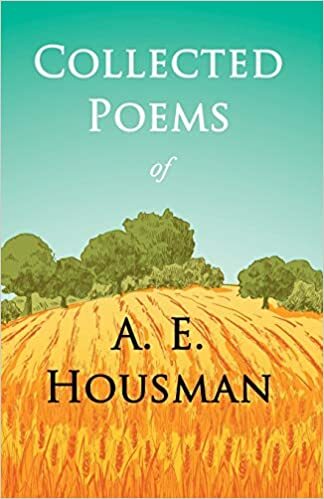
The Laws of God, the Laws of Man: I can see why someone would love this poem. It has no logic to it, really, it’s just a guy trying to exempt himself from the “laws of God and man.” He didn’t write them, he doesn’t agree with them, he shouldn’t be held to them; it is a sort of tyranny to the “foreigner.” Ehn. The actual poem is certainly acceptable, if not breath-taking. And it might make you think, but not for long, because, like I said, it lacks intellectual rigor, really. Wishful. Propogandist. But what is our answer to this? Huh. (See The Collected Poems of A. E. Housman and also The Invention of Love, Tom Stoppard)

High Flight: This is a classic of sorts. You should recognize the last line: “Put out my hand, and touched the face of God.” While not completely congruent with many theologies, there is also something true about it and about the romantic celebration of/experience of flight, or, as I see it, metaphorically other human feats of talent such as art (and writing). I like it. It’s an ecstatic romp of language and thought on the happy side. (See High Flight: The Life and Poetry of Pilot Officer John Gillespie Magee or Touching the Face of God, Ray Haas)
 Image from Amazon.com
Image from Amazon.comMiddle Passage: It’s certainly beautiful as a poem and disturbing as a story. “Middle Passage” is about the Middle Passage—the leg of the triangle sea navigation used for hundreds of years of African slave trade, from African shores to American shores. I would say that it is a poem worth reading, and it is, but you are going to need to study it to fully extricate what it has for you. Why? Because it’s confusing, that’s why. It is on the long side for a poem, but the confusion lies in the different voices. There are six? Or seven? And since Hayden uses so many things (Roman numerals, italics, quotes, indentations, etc.) in seemingly random succession, it is nearly impossible to know at first read who is speaking and how many voices there are. On the other hand, you get the idea behind the poem and behind the gruesome scenes and behind most of the emotions, and you also realize that this is structurally beautiful poetry and powerful language (though another barrier to immediate understanding is the lofty vocabulary. You could use a dictionary, for sure). I would recommend this poem to an older audience because of its violence and mature content. It would be a good one for studying in a variety of history or literature classes in high school or college. Personally, I could hear the creaking of the masts as I read and, even on the first read, could sense the horrors of history. (See Collected Poems, Robert Hayden (and also Africans in America)
 Image from Amazon.com
Image from Amazon.comIn Flanders’ Fields: When I first read this poem (at least this go-‘round), I immediately thought of Rilla of Ingleside by L. M. Montgomery. In that novel (a favorite of mine), the protagonist’s brother goes off to fight in the first World War and writes a short poem that travels the world and inspires many a soldier and civilian. It seems to me that this poem (the fictional “The Piper” by Walter Blythe) is inspired by “In Flanders Fields.” Then I looked it up, and I am definitely not the first person to make this connection. But you were wondering about the poem? It is a short, beautiful, inspirational poem from another time and place. It is, as Blythe’s is, written with the voice of a soldier at the front. He has died fighting for the cause and he is encouraging others to take up the cause and continue the fight. It has a melancholy strain to it, but it is also heartbreakingly simple and sweet. It speaks of costs of war fairly clearly and it is a perfect read for, again, either a history or literature class. (See In Flanders’ Fields and Other Poems and the picture book, In Flanders’ Fields: The Story of the Poem.)

The Swing: It is a simple poem. And yet. It feels like a swing. And you want to love it because swinging on a swing so high that you can see over the garden wall and up on the roof… it is one of the best things, isn’t it? It’s pastoral, idyllic, meant for children and for adults to recapture their childhood in only twelve lines. I wouldn’t say it’s my favorite poem ever, but it is a pleasant one and one which a student or poet might use for observation and study. (See A Child’s Garden of Verses)
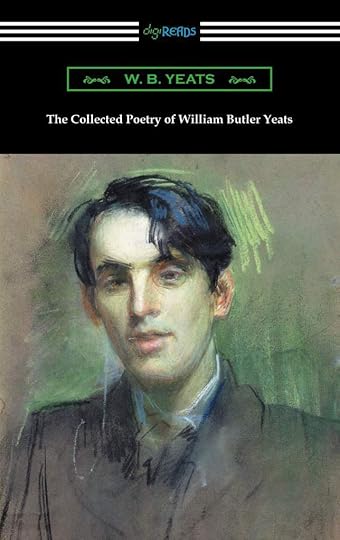 Image from Amazon.com
Image from Amazon.com*Aedh Wishes for the Cloths of Heaven: You don’t need to know anything to enjoy this poem, especially if you have a sense of words and aesthetics, it’s just a short and achingly beautiful poem. It borders on the simplicity of “Roses Are Red,” being a pure love poem, but the simplicity is just part of its beauty. With just a few whacks of the poetic line, we have imagery, we have emotion, we have a story of sorts, and we have a vulnerability you can feel in your chest. Then you wonder, “Who is Aedh?” Turns out, it’s not so important to the reading of this poem. In fact, most versions replace “Aedh” with “He,” or shorten the title to “The Cloths of Heaven.” But there are some critics who say that Aedh—one of three characters that Yeats uses in his poetry mid-career—is either a bit farcical or referencing an Irish god (of death, actually). In this case, the poem is a little tongue-in-cheek, a bit purposefully exaggerated. Strangely, most people disregard the allusion entirely. They certainly have a better understanding of Yeats’ work as a body than I do, so I guess we’ll just go with that, for now. (See The Collected Poetry of William Butler Yeats)

* Kingdom Animalia: Love this poem. It’s a more modern poem than most of them listed here, but it is an extremely powerful poem. It leaves space to analyze it, especially in light of the title, but it can be enjoyed simply in the first reading. It’s very bittersweet, celebrating the little things with an exquisite beauty of poetic presentation, but we are confronting death here: the death of loved ones and our own inevitable death. (See Kingdom Animalia, The Black Maria, or Teeth)
 Image from Amazon.com
Image from Amazon.com* The Glass Essay: This is the first poem on the list that I need to purchase a book to read in its entirety. I buy an old copy of Glass, Irony and God, a collection of Carson’s poem beginning with the longest, “The Glass Essay.” It runs to page 38 but is not sparse for a poem. It is like part of a story—snapshots saying something—so more poemlike than not. I can’t recall if I’ve read any Ann Carson before, but I love this poem. Like with many stories and poems, I can’t quite go there with Carson in the final meaning of the poem (I am more in line with the Emily Bronte she considers throughout), but I can recognize and appreciate so many other moments of the poem. There is terror and sadness, but overall it is a thing of both beauty and mundanity, full of stark, catching lines and—quite frankly—nearly flawless as a poem. It reads like those high-end poems, sure, but it is also accessible. Loved this one. (See Glass, Irony and God)
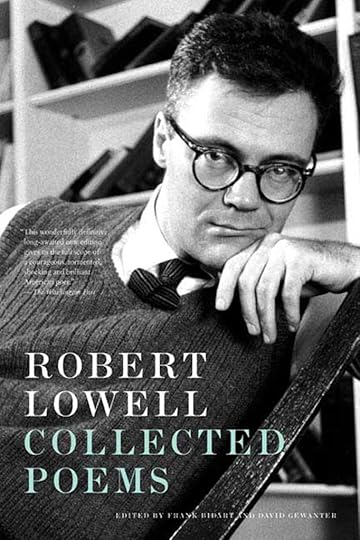 Image from Amazon.com
Image from Amazon.comMan and Wife: With a quick search and study, I found that people get all sort of contradictory things out of this poem. It is definitely one of those poems where one can read it and enjoy it without doing extensive research or studying it in class, though it begs that with all sorts of allusions to both Lowell’s personal life and other things (an insane asylum, a Greek god, a type of tree…). Still, the first read probably won’t do it for you and you’ll need to go back once or twice to re-read with the understanding you have gained along the way. The first time you have questions, the second you have more purpose. It is a nice poem, very considered, visual, and deep. It is also about love (and marriage, see title) after some time, which is not something you see so often. I don’t think it’s as negative as some critics do, but I am reading it in light of a flash piece I am currently trying to sell, set on a morning in bed with a long-term spouse, so almost exact. My piece is meant to highlight the beauty though normalcy of long love. (See Collected Poems)
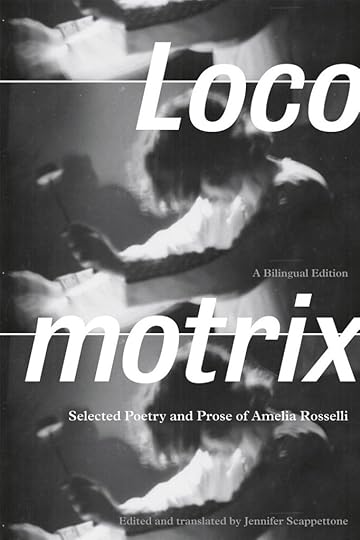 Image from Amazon.com
Image from Amazon.comWell, so patience to our souls: This is confusing, and not because the poetry itself is confusing (though it might be. Give me a sec). I can’t tell if there is a poem titled “Sleep” in the collection Sleep, or if Rosselli’s poems are untitled and divided merely by asterixis? After much to-do, I found a short poem or part of a poem beginning “Well, so patience to our souls.” The issue with reading Rosselli is the lack of translation. A small fraction of her work has been translated and English-speakers don’t generally know her stuff. All that said, the bit I read (if it was right or not, I know not) was very poet-y. That’s not really a compliment. Go to any poetry reading and you will find a number of stuffy, insider-type orators carefully breathing into the rhythm of some loose-jointed allusions and edgy imagery. Perhaps Rosselli is partly responsible for that? While hard-core poets might enjoy this type of thing, I, as a dabbler, don’t really. It feels confusing, suffocating, and pretentious. Not that Rosselli’s poem is all those things, really, just that it feels old, now. Go ahead, mine it for its meaning and its beauty or study it for its original freshness, but I don’t feel like I need to. But I am curious to know if I even read an entire poem. (See Locomotrix)

* A Song in the Front Yard: Gwendolyn Brooks is a favorite of mine. She doesn’t need traditional form or rhyme or any of that for her poems to sound like music and her meaning to be clear. If you haven’t been there—a sheltered kid thinking they might want to live the unsheltered life—then you can easily imagine it, here. She does play with rhyme and with words and their sounds, but the real power is in the story. It’s a great, solid poem. (See The Essential Gwendolyn Brooks)
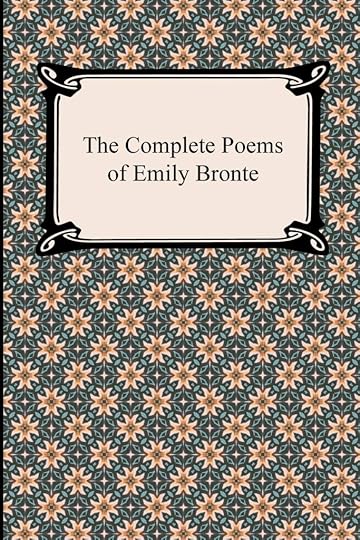
Remembrance: This is old-fashioned poetry, a classic of the English language. It’s a medium-length poem, with traditional rhyme and rhythm. It would be a great poem for teaching, because it’s not too difficult to understand but it could be re-read and mined for more. There’s tension here and plenty of emotion: perhaps too much for today’s taste. The speaker is recalling a lover who died a long time ago, but whom they are still grieving. Indeed, they are considering the very nature of grief: can it lessen? Can it end? Can life ever be the same after it? It’s a little depressing, actually, but it’s an interesting poem. (See The Complete Poems of Emily Bronte)
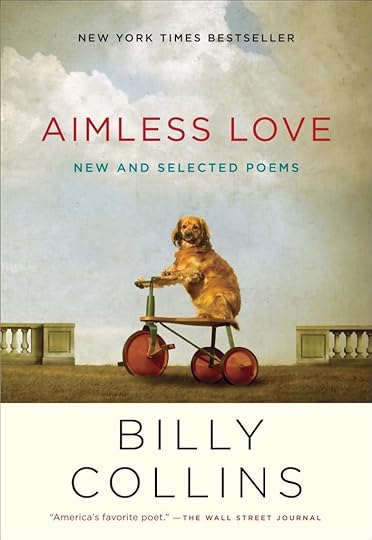
* The Afterlife: It’s a fun poem. It’s a nice poem. I’m not sure I understand its point? I mean, it’s logically absurd, basically, but poems often are. It’s pushing buttons, surely, saying that everyone goes to the afterlife they conceived of on Earth, so I’m assuming it has more to do with what our notions are about the afterlife? I like it. The people Collins chooses to portray are more or less familiar to us; there aren’t specific references to certain gods or anything, but what is it that we hope for? What is it that we believe? Yeah, on second thought, I like this poem, from a poet I (and many, many people) am familiar with. (See Aimless Love: New and Selected Poems and/or Sailing Around the Room: New and Selected Poems)
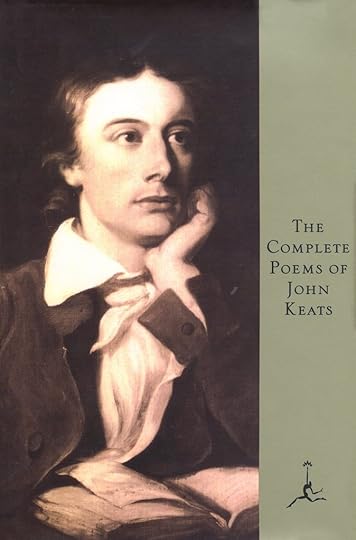
My chest of books divide among my friends: More than anything, it is the history behind this poem that is of note. The circumstances. Keats was dying of consumption in his early 20s after a very brief and bright career. He left for Italy to regain his health but he really had little to no hope. He wrote this poem (in iambic pentameter) on a scrap of paper as his will and then went to Italy, where he died at 25, in poverty but with friends. This is considered his last penned poem. What a fascinating thing, to write your last will and testament as a jotted poem, leaving your library (about 80 books, it turns out) to your friends. The wishes were carried out. (See The Complete Poems of John Keats or Complete Poems and Selected Letters of John Keats)
 Image from Amazon.com
Image from Amazon.com* Asphodel, That Greeny Flower: This is the first poem on this list that is long enough I had to buy it in book-form to read it in its entirety. And less than 40 VERY sparse pages just flies by. This long poem is considered Williams’s masterpiece, written for his wife of many years when he was in his 70s, ailing, struggling, and confessing his affairs to her. It took him two years to write, which is something to think about as you read it. It feels both off-the-cuff and carefully crafted at the same time. I tend to like what little of William Carlos Williams I have read. While I am not a huge fan of reading difficult, long-form poetry (I feel so lost, like the author is hiding clarity behind a curtain), I liked relaxing into a reading of “Asphodel.” Perhaps it’s a little bit that I am getting older myself and the piece felt futuristically nostalgic, but if a good reader just chills while reading this (and knows a little background), the meaning rises up to just below the surface, anyhow. And it sounds beautiful. And it has wonderful phrases. And I also thought the use of repetition and stream-of-consciousness and even humor was playful in a very bittersweet way. It would definitely be worth a closer read and worth studying.
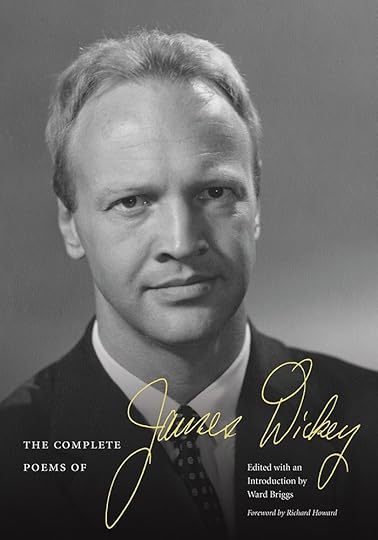 Image from Amazon.com
Image from Amazon.com* Falling: “Death is an inevitability, though it must always come as a surprise to the living” (Jenna Krajeski, The New Yorker). That is a quote from a kind of a review of the poem, “Falling.” I was really surprised by this poem. I remember the first time I saw “James Dickey” in a literature textbook and hoped, for a moment, that I might be related to this author. (My mother’s maiden name is Dickey and my grandfather’s given name is James Dickey.) But I haven’t seen that much of the author over the years, to be honest, so I didn’t expect this poem. It’s long, maybe too long, but it contains choices of both content and word (and format) that are genius. The idea for the poem began with a snippet from the news and the poem ends with several minutes of watching a woman (who has become myself) plummeting to her death while thinking, stripping, contemplating flight… the air constantly whipping in my ears and all my senses alive. I wonder if I might like some of Dickey’s other poetry better, but “Falling” is a pretty miraculous poem, whether or not I fully understand or even agree with its “conclusions.” (See The Complete Poems of James Dickey)
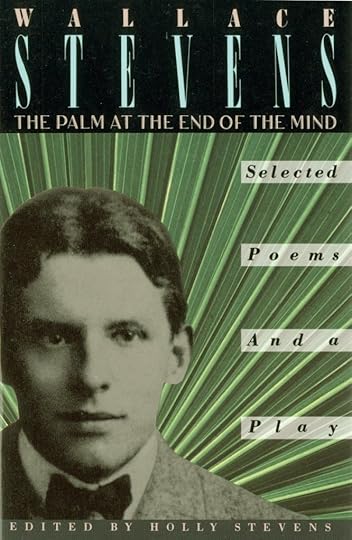
Of Mere Being: This is a poet’s poem, I think, which makes sense because I also think Wallace Stevens is a poet’s poet. Actually, there are a great many poet’s poets, which is not so cool, really. I mean, twice through and at least I understand the palm as a tree, so that’s good, though I haven’t understood that the bird is a phoenix, which is important. It’s not so bad that all I can do is hear this poem whispered melodically and nod my head. I do get it, to a point. Its thoughts are interesting too. Stevens says that existence is enough to cause emotion, even happiness. There is some contemplation on death and life. I guess I understand why you would really like it. I enjoy it, with reservations. (See The Palm at the End of the Mind)
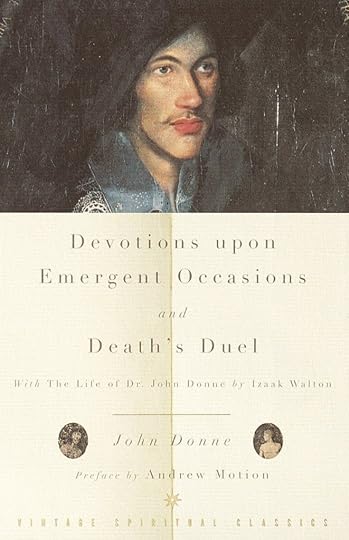
Devotions Upon Emergent Occasions: No Man Is an Island: A classic. You’ve probably read it, and if you haven’t, you’ve heard two quotes from it multiple times, and that’s saying a lot because the poem is nine lines in total. The first is, obviously, “No man is an island…”. The second is, “…never send to know / for whom the bell tolls; it tolls for thee.” The point is a very early idea of the butterfly effect as it pertains to humans in a giant organism of humanity. (see Devotions Upon Emergent Occasions and Death’s Duel)
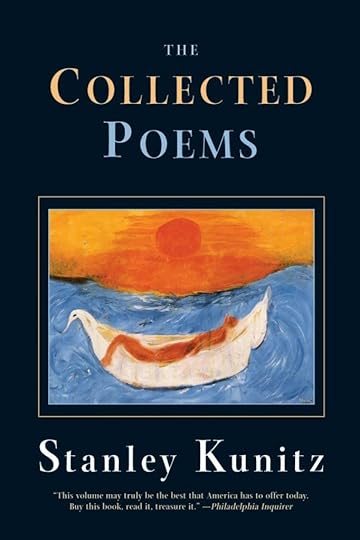
* The Long Boat: Modern poetry, but so classy: which means, clear and yet beautiful. I really like this rather short poem and there is so much there. There is meaning, perhaps a little blisteringly evident, but then again it’s rather universal, at least as a metaphor, which is indeed how it is meant to be read… the second time. The first time, it’s all senses engaged in emotional, thoughtful, imagery. Reading this poem and seeing that Kunitz was the poet laureate at the prime of his career at age 95 really makes me want to read more of his work. If I were going to do a New York Times “What’s Your Favorite Poem” book club, I would definitely include a couple of his books (see below). (See The Collected Poems)

Caged Bird: Certainly this is a wonderful poem and Maya Angelou knew what she was doing when she wrote it. I read and reviewed the book, I Know Why the Caged Bird Sings, a little while back, but I don’t seem to remember realizing there was a poem related to it. From what I can tell, the poem was written decades after the memoir, so Angelou was using imagery that she had used before. Perhaps she was still thinking about it. Despite of the poem’s depth and intimacy, it is easy to understand though much more difficult to internalize. It’s a poem about freedom versus slavery and about listening to others. Basically. A great classic. (See The Complete Poetry)

The Drunken Boat: (Translation from the French) Hmm. I read it as, from what I can tell, it is meant to be read: sort of a lucid onslaught of bright and obscured visions as an abandoned boat wanders about the Atlantic shores of North America. I was looking for some sort of moral judgment, but apparently Rimbaud was sixteen and in France when he wrote this and I think it’s more of an emotional journal with a hallucinatory effect. It’s not that short. Actually, it feels too long, to me, especially with repeated words and basic images, but it is considered Rimbaud’s best and a piece of genius work that fits its sound and form to the meaning of the poem. It is good, for sure. And with the repeat of children we look for meaning. At any rate, the imagery, if fevered, is quite fetching. (See Arthur Rimbaud: Complete Works)
 Image from Amazon.com
Image from Amazon.comDavid Cassidy Then: This poem and the poetry of Dennis Cooper are not going to be for everyone. Interested for much of his career in the intersection between violence and sex (I believe that’s how The Paris Review put it), this poem is a level of sex + mundaneness + intimacy that you don’t read all the time. Like the lens is super-focused and super-magnified. But it’s strange because the poem is also an ecstatic and gleeful romp into a fantasy (of sleeping with a famous actor) that has a definite playful (and perhaps naive) side. (I actually really wanted to learn more about where this particular poem came from, but I couldn’t find anything.) There are things to talk about, here, and the poem itself is really tight, really beautiful in form and language. I can see why you might love this poem, but certainly it is uncomfortable if you have even a touch of mysophobia or have even been called “uptight” in your life. (See The Dream Police: Selected Poems)

Trees: a classic poem, there are some things to be admired here (and emulated: so many poets have used this poem as a jumping-off place) but I have to agree that it is a bit simple and sentimental. I think readers tend to like the point more than the actual poem: nature is a better poet than the best poet. Also, God is really the poet, here, so if you are going to get angry at that worldview… In the end, (Alfred) Joyce Kilmer was mainly famous for this single poem, at least in the long run, and died young in WWI. (See Trees and Other Poems)

Hop on Pop: Dr. Seuss is best known for his children’s books, complete with his illustrations. He is a cultural force and likely changed the world of picture books. Hop on Pop is a simplistic picture book meant for very early readers, even to teach reading. Seuss has more complicated books, but this is an absolute classic for the youngest children. The poem/book uses very few words and the rhymes are of the purest sort. And in Seuss style, the pictures make sense of the copy. “Walk / Talk / We like to talk.” Acknowledging this poem is to acknowledge a genius and influencer of children’s books and a large library. (See Hop on Pop or A Classic Case of Dr. Seuss)
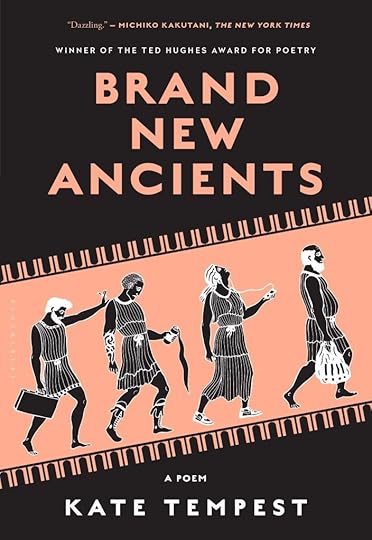 Image from Amazon.com
Image from Amazon.com* Brand New Ancients: Kae/Kate (they/them) Tempest is meant to be heard. They is a renowned spoken word poet, so I would recommend you listen to Brand New Ancients, which runs at over an hour and is a story as much as a poem. I listened to it as I read it, occasionally making notes because it was interesting to see how Tempest had changed things, sometimes in fairly big ways, sometimes an important word, sometimes possibly just a quick change in the reading. I admit to being swept away. I have a thing for innovative art of any form, and perhaps there are many other spoken word story poems like this, but it was both new to me and extremely well done. I suppose I didn’t agree with all of the assertions of the poem (about us being gods and being one, though I think it was meant more metaphorical and literarily) and I also suppose the whole thing was a little gritty for my usual taste, but overall it was breathtaking and beautiful. If you have any sort of love for poetry (which I imagine you do, reading this post), you need to listen to this (at just under an hour and a half). If you read it while you listen, it counts as reading for sure, but this piece is definitely not just writing; it is performance art. I could find some small faults, but it was great as a story, as a poem, and as a performance, and it went beyond a regular old story, looping in all this great allusion and imagery. (See Brand New Ancients (paperback and audiobook))
 Image from Amazon.com
Image from Amazon.comYou Don’t Miss Your Water: And we finish this list with two titles (see directly above) that are meant to be listened to more than read in a book. Actually, “You Don’t Miss Your Water” can’t be found in any book; it is a song, or, as a poem, song lyrics. William Bell was a prolific and lauded songwriter (never probably even dreaming of publishing a book of poetry) and this is one of his most famous (and oft-covered) songs. To be honest, reading it as lyrics, it isn’t really that exciting, which leads to a whole discussion (which I had with my ninth graders this year) about is music poetry?. When listening to this song as a song, it gains a magic and a mood that are imbued by the delivery. This was maybe Woodson’s point when she included this “poem” in the Times article. It has rhyme, rhythm, and metaphor, and personally, I put a lot of emphasis on lyrics when I listen to songs. Songs aren’t just poetry, and not all music is poetry, but music and poetry are intertwined art forms and there are lyrics that can stand alone as powerful, lyrical words. Maybe this song wouldn’t be my choice here, but it is good, classic stuff. If interested in music and poetry together see this list HERE (and then come up with your own) or this one HERE. (See The Very Best of William Bell (audio, music))
A BOOK CLUB BASED ON THESE POEMS
A book club based on these poems would last 26 months and each month would cover the poem and up to two books. Of course, one could just pick and choose (you could start with the six I gave asterixis) and make it a year, or something. Anyhow, I love book club ideas (see HERE and HERE), so this is just another one based on The New York Times’ “What’s Your Favorite Poem?” Each author’s name is followed by the title of the poems listed above and then at least two suggestions for what to read in conjunction with that poem. Almost all (or all) of the selections include one book of poetry that contains the featured poem.
A. E. Housman: “The Laws of God, The Laws of Man”; The Collected Poems of A. E. Housman; The Invention of Love, Tom StoppardJohn Gillespie Magee: “High Flight”; High Flight: The Life and Poetry of Pilot Officer John Gillespie Magee or Touching the Face of God, Ray Haas (or both)Robert Hayden: “Middle Passage”; Collected Poems, Robert Hayden; Africans in America, Johnson and SmithJohn McCrae: “In Flanders Fields”; In Flanders’ Fields and Other Poems; the picture book, In Flanders’ Fields: The Story of the Poem; Rilla of Ingleside, L. M. Montgomery (another option: World War I: The Definitive Visual History)Robert Louis Stephenson: “The Swing”; A Child’s Garden of Verses; The Complete Stories of Robert Louis Stevenson (including The Strange Case of Dr. Jekyll and Mr. Hyde), and/or Treasure IslandWilliam Butler Yeats: “Aedh Wishes for the Cloths of Heaven”; The Collected Poetry of William Butler Yeats; Irish Fairy and Folk TalesAracelis Girmay: “Kingdom Animalia”; Kingdom Animalia (or Teeth or The Black Maria); changing, changingAnne Carson: “The Glass Essay”; The Beauty of the Husband (or Plainwater or An Autobiography of Red or Men in the Off Hours); An Oresteia or a translation, like AntigoneRobert Lowell: “Man and Wife”; Collected Poems; Robert Lowell, Setting the River on FireAmelia Rosselli: “Sleep”; Locomotrix; Sleep or October Elizabethans (very limited in English)Gwendolyn Brooks: “A Song in the Front Yard”; The Essential Gwendolyn Brooks; Exquisite; Maud MarthaEmily Bronte: “Remembrance”; The Complete Poems of Emily Bronte; Wuthering Heights; The Bronte Sisters, Catherine Reef; (and I am actually working on a book of Bronte poetry, so once that’s published by Owl and Zebra Press, I would obvi recommend Poems of Currer, Ellis, and Acton Bell)Billy Collins: “The Afterlife”; Aimless Love: New and Selected Poems and/or Sailing Around the Room: New and Selected Poems; Billy Collins LiveJohn Keats: “My chest of books divide among my friends”; The Complete Poems of John Keats or Complete Poems and Selected Letters of John Keats; Keats’s Poetry and Prose (Norton Critical); Bright Star (movie)William Carlos Williams: “Asphodel, That Greeny Flower” (in Asphodel that Greeny Flower and Other Love Poems); Selected Poems (Tomlinson); The Autobiography of William Carlos Williams or A River of WordsJames Dickey: “Falling”; The Complete Poems of James Dickey; Deliverance; Summer of Deliverance; (possibly a recent edition of The James Dickey Review)Wallace Stevens: “Of Mere Being”; The Palm at the End of the Mind; The Necessary AngelJohn Donne: “Devotions Upon Emergent Occasions: No Man Is an Island”; The Complete Poetry and Selected Prose of John Donne; Devotions Upon Emergent Occasions and Death’s DuelStanley Kunitz: “The Long Boat”; The Collected Poems; The Wild BraidMaya Angelou: “Caged Bird”; The Complete Poetry; I Know Why the Caged Bird Sings (or The Collected Autobiographies of Maya Angelou); Letter to My Daughter(Arthur) Rimbaud: “The Drunken Boat”; Arthur Rimbaud: Complete Works; Rimbaud: A BiographyDavid Cooper: “David Cassidy Then”; The Dream Police: Selected Poems; Closer; Jerk(Alfred) Joyce Kilmer: “Trees”; Trees and Other Poems; Dreams and Images: An Anthology of Catholic PoetsDr. Seuss/Theodor Seuss Geisel: “Hop on Pop”; A Classic Case of Dr. Seuss; Becoming Dr. Seuss; Just What the Doctor DisorderedKae Tempest/Kate Tempest (they/them): “Brand New Ancients”; Brand New Ancients audiobook; Let Them Eat ChaosWilliam Bell: “You Don’t Miss Your Water”; The Very Best of William Bell (audio, music); “You Don’t Miss Your Water,” Otis Redding; (nothing else, unless you want to read Brown Girl Dreaming because Jacqueline Woodson recommended this title)QUOTES:
from “Asphodel, That Greeny Flower”:
“I cannot say / that I have gone to hell / for your love / but often / found myself there / in your pursuit.”
from Brand New Ancients:
“he had a smile like a jewel in a sewer, / knuckles like an open tool box, / eyes like Kahlua—”
“We don’t know the names of our neighbors, / but we know the names of the rich and famous. / And the names of their ex-girlfriends / and their ex-girlfriends’ new boyfriends / blah, blah, blah…”
“…she couldn’t make out the grain of their wood through the layers of varnish,”
“Her heart beat like wings in her chest.”
from “The Glass Essay”:
“Why hold onto all that? And I said, / Where can I put it down?”
“When Law left I felt so bad I thought I would die. / This is not uncommon.”
“Girls are cruelest to themselves. / Someone like Emily Bronte, / who remained a girl all her life despite her body as a woman, “
“I peel the steel cage of the sheets off my legs / and I am free.”
“As if anger could be a kind of vocation for some women. / It is a chilly thought.”
August 15, 2022
Books and Movies and Book Clubs
I love books, obviously. I also happen to love movies. I don’t love movies as much as books, I suppose, but I really enjoy a great movie and have some real favorites. I will also often watch related movies (or series) after reading a book. Thus, when I found an article from Harper’s Bazaar, I was inspired to turn it into a Book Club (or to-do) list. I was also inspired to add about a million other ideas. I went a little crazy on this one, but the lists I could find suggesting books with movies were so wildly varied (like genre, which one was better, etc.) that I just had to include a whole bunch of them. (The first part of the list is directly culled from “36 of Our Favorite Films Adapted from Books,” Harper’s Bazaar, April 15 2022.) (Note that my ratings are for PAIRS, not just a movie or a book.)
Hidden Figures (2016), Hidden Figures (Margot Lee Shetterly)A Scanner Darkly (2006), A Scanner Darkly (Philip K. Dick)Little Women (1994, 2019), Little Women (Louisa May Alcott) ***The Joy Luck Club (1993), The Joy Luck Club (Amy Tan)The Pursuit of Happyness (2006), The Pursuit of Happyness (Chris Gardner)Dog Day Afternoon (1975), “The Boys in the Bank” (Life magazine article)Call Me By Your Name (2017), Call Me By Your Name (Andre Aciman)12 Years a Slave (2013), 12 Years a Slave (David Wilson)Stand By Me (1986), “The Body” (Stephen King)Beautiful Boy (2018), Beautiful Boy (David Sheff) and Growing Up on Methamphetamines (Nic Sheff)Gone Girl (2014), Gone Girl (Gillian Flynn) *The Color Purple (1985), The Color Purple (Menno Meyjes)Misery (1990), Misery (Stephen King)The Boy in the Striped Pajamas (2008), The Boy in the Striped Pajamas (John Boyne)The Last King of Scotland (2006), The Last King of Scotland (Giles Foden)Wild (2004), Wild (Cheryl Strayed)If Beale Street Could Talk (2018), If Beale Street Could Talk (James Baldwin)All the President’s Men (1976), All the President’s Men (Carl Bernstein and Bob Woodward)Slumdog Millionaire (2008), Q&A (Vikas Swarup)Howl’s Moving Castle (2004), Howl’s Moving Castle (Diana Wynne Jones)Matilda (1996), Matilda (Roald Dahl) ***Arrival (2016), “Story of Your Life” (Ted Chiang)Jurassic Park (1993), Jurassic Park (Michael Crichton)The Age of Innocence (1993), The Age of Innocence (Edith Wharton)Beloved (1998), Beloved (Toni Morrison)The Da Vinci Code (2003), Da Vinci Code (Dan Brown)Devil Wears Prada (2003), The Devil Wears Prada (Lauren Weissberger)Great Expectations (1998), Great Expectations (Charles Dickens)How Stella Got Her Groove Back (1998), How Stella Got Her Groove Back (Terry McMillan)Passing (2021), Passing (Nella Larsen)Precious (2009), Push (Sapphire)The Secret Life of Bees (2008), The Secret Life of Bees (Sue Monk Kidd)Sisterhood of the Travelling Pants (2001), Sisterhood of the Travelling Pants (Ann Brashare)The Firm (1993), The Firm (John Grisham)The Green Mile (1999), The Green Mile (Stephen King) *Waiting to Exhale (1995), Waiting to Exhale (Terry McMillan)Children of Men (2006), Children of Men (P.D. James)The Princess Bride (1987), The Princess Bride (William Goldman) *Adaptation (2002), The Orchid Thief (Susan Orleans)Election (1999), Election (Tom Perrota)Sense and Sensibility (1995), Sense and Sensibility (Jane Austen) ***Mean Girls (2004), Queen Bees and Wannabees (Rosalind Wiseman)The Shawshank Redemption (1994), Shawshank Redemption (Stephen King)Harry Potter and the Prisoner of Azkaban (2004), Harry Potter and the Prisoner of Azkaban (J. K. Rowling) ***Atonement (2007), Atonement (Ian McEwan)The Wizard of Oz (1939), The Wizard of Oz (L. Frank Baum) *The Lord of the Rings: The Fellowship of the Rings (2001), The Fellowship of the Ring (J. R. R. Tolkien) ***The Godfather (1972), The Godfather (Mario Puzo)The Talented Mr. Ripley (1999), The Talented Mr. Ripley (Patricia Highsmith)The Perks of Being a Wallflower (2012), The Perks of Being a Wallflower (Stephen Chbosky)The Shining (1980), The Shining (Stephen King)The Silence of the Lambs (1991), The Silence of the Lambs (Thomas Harris)Forrest Gump (1994), Forrest Gump (Winston Groom)Emma (2020), Emma (Jane Austen) ***Lincoln (2012), Team of Rivals (Doris Kearns Goodwin)Room (2015), Room (Emma Donaghue)The Princess Diaries (2021), The Princess Diaries (Meg Cabot)One Flew Over the Cuckoo’s Nest (1975), One Flew Over the Cuckoo’s Nest (Ken Kesey)What’s Love Got to Do with It (1993), I, Tina (Tina Turner)To Kill a Mockingbird (1962), To Kill a Mockingbird (Harper Lee)Snowpiercer (2013), Le Transperceniege (Rochette and Lob)The Nanny Diaries (2007), The Nanny Diaries (MaLaughlin and Krauss)Tinker Tailor Soldier Spy (2011), Tinker Tailor Soldier Spy (John le Carre)Poldark (2015), Ross Poldark (Winston Graham)It’s Kind of a Funny Story (2010), It’s Kind of a Funny Story (Ned Vizzini)Outlander (2014), Outlander (Diana Gabaldon)Normal People (2020), Normal People (Sally Rooney)The Maze Runner (2014), The Maze Runner (James Dashner)The Call of the Wild (2020), The Call of the Wild (Jack London)Nomadland (2020), Nomadland (Jessica Bruder)Dune (2021), Dune (Frank Herbert)Revolutionary Road (2008), Revolutionary Road (Richard Yates)The Reader (2008), The Reader (Berhard Schlink)Little Children (2006), Little Children (Tom Perrota)About a Boy (2002), About a Boy (Nick Hornby)Capote (2005), Capote in Kansas (Kim Powers)A Clockwork Orange (1971), A Clockwork Orange (Anthony Burgess)Cold Mountain (2003), Cold Mountain (Charles Frazier)The Diving Bell and the Butterfly (2007), The Diving Bell and the Butterfly (Jean-Dominique Bauby)The English Patient (1996), The English Patient (Michael Ondaatje)Fight Club (1999), Fight Club (Paul Palahnuik)High Fidelity (2000), High Fidelity (Nick Hornby)The Kite Runner (2007), The Kite Runner (Khaled Hosseini)Mystic River (2003), Mystic River (Dennis Lehane)Out of Africa (1985), Out of Africa (Isaak Dinesen)Pride and Prejudice (2005), Pride and Prejudice (Jane Austen)The Remains of the Day (1993), The Remains of the Day (Kazuo Ishiguro)Gone with the Wind (1939), Gone with the Wind (Margaret Mitchell)The Outsiders (1983), The Outsiders (S. E. Hinton)A Christmas Carol (?), A Christmas Carol (Charles Dickens) and HERE ***The Hunger Games (2012), The Hunger Games (Suzanne Collins) ***The Hitchhiker’s Guide to the Galaxy (2005), The Hitchhiker’s Guide to the Galaxy (Douglas Adams) *Holes (2003), Holes (Louis Sachar) *A Time to Kill (1996), A Time to Kill (John Grisham)Much Ado About Nothing (1993), Much Ado About Nothing (William Shakespeare) ***Frankenstein (?), Frankenstein (Mary Shelley) *Water for Elephants (2011), Water for Elephants (Sarah Gruen)Charlie and the Chocolate Factory (1971, 2005), Charlie and the Chocolate Factory (Roald Dahl) ***Watchmen (2009), Watchmen (Alan Moore)James and the Giant Peach (1996), James and the Giant Peach (Roald Dahl) *The Martian (2015), The Martian (Andy Weir)Carrie (1976), Carrie (Stephen King)The Hours (2002), The Hours (Michael Cunningham)A Room with a View (1985), A Room with a View (E. M. Forster)Red Dragon (2002), Red Dragon (Thomas Harris)The Talented Mr. Ripley (1999), The Talented Mr. Ripley (Patricia Highsmith)Rosemary’s Baby (1968), Rosemary’s Baby (Ira Levin)A Simple Plan (1998), A Simple Plan (Scott Smith)The Help (2011), The Help (Kathryn Stockett)No Country for Old Men (2007), No Country for Old Men (Cormac McCarthy)Blade Runner (1982), Do Androids Dream of Electric Sleep (Philip K. Dick)Apocalyse Now (1979), Heart of Darkness (Joseph Conrad)American Psycho (2000), American Psycho (Bret Easton Ellis)Goodfellas (1990), Wiseguy (Nicholas Pileggi)L. A. Confidential (1997), L. A. Confidential (James Elroy)Trainspotting (1996), Trainspotting (Irvine Welsh)The Girl with the Dragon Tattoo (2009), The Girl with the Dragon Tattoo (Stieg Larsson)True Grit (2010), True Grit (Charles Portis)Brokeback Mountain (2005), Brokeback Mountain (Anne Proulx)The Maltese Falcon (1941), The Maltese Falcon (Dashiell Hammett)All Quiet on the Western Front (1930), All Quiet on the Western Front (Erich Maria Remarque)It (2017), It (Stephen King)Babe (1995), The Sheep-Pig (Dick King-Smith)Requiem for a Dream (2000), Requiem for a Dream (Hubert Selby Jr.)Empire of the Sun (1987), Empire of the Sun (J. G. Ballard)Great Expectations (1946), Great Expectations (Charles Dickens)The Big Sleep (1946), The Big Sleep (Raymond Chandler)The Prime of Miss Jean Brodie (1969), The Prime of Miss Jean Brodie (Muriel Spark)Don’t Look Now (1973), Don’t Look Now (Daphne du Maurier)Brighton Rock (1947), Brighton Rock (Graham GreeneMoby-Dick (1956), Moby-Dick (Herman Melville)Lolita (1962), Lolita (Vladimir Nabokov)Silver Linings Playbook (2021), Silver Linings Playbook (Matthew Quick)The 39 Steps (1935), The 39 Steps (John Buchan)Rum Punch (1997), Rum Punch (Elmore Leonard)The Personal History of David Copperfield (2019), David Copperfield (Charles Dickens) ***Wuthering Heights (1939), Wuthering Heights (Emily Bronte) ***A Kestrel for a Knave (1969), A Kestrel for a Knave (Barry Knaves)Doctor Zhivago (1965), Doctor Zhivago (Boris Pasternak)The Life of Pi (2012), The Life of Pi (Yann Martel) ***Schindler’s List (1993), Schindler’s List (Thomas Keneally)Casino Royale (2006), Casino Royale (Ian Fleming)Everything Must Go (2010), “Why Don’t You Dance?” (Raymond Carver)The Secret Life of Walter Mitty (2013), “The Secret Life of Walter Mitty (James Thurber) ***The Swimmer (1969), “The Swimmer” (John Cheever)Rashomon (1950), “Rashomon” and “In a Grove” (Ryunosuke Akutagawa)Total Recall (1990, 2012), We Can Remember It for You Wholesale (Philip K. Dick)In the Bedroom (2001), “Killings” (Andre Dubus)3:10 to Yuma (1957, 2007), Three-Ten to Yuma (Elmore Leonard)The Illusionist (2006), “Eisenheim the Illusionist” (Steven Millhauser)Minority Report (2002), “The Minority Report” (Philip K. Dick)The Fallen Idol (1948), “The Basement Room” (Graham Greene)Sleepy Hollow (1999), “The Legend of Sleepy Hollow” (Washington Irving)Rear Window (1954), “It Had to Be Murder” (Cornell Woolrich)Away from Her (2007), “The Bear Came Over the Mountain” (Alice Munro)The Loneliness of the Long-Distance Runner (1962), “The Loneliness of the Long-Distance Runner” (Alan Sillitoe)The Dead (1987), “The Dead” (James Joyce)The Duellists (1977), “The Duel” (Joseph Conrad)August 2, 2022
Book Review: Winnie-the-Pooh
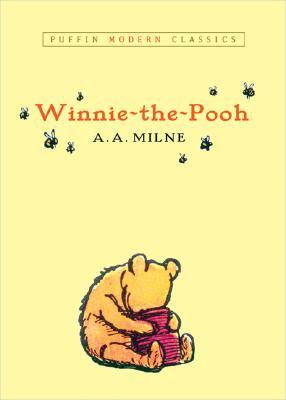
I purposely went from Zadie Smith’s NW to A. A. Milne’s Winnie-the-Pooh. I find Smith to be—while beautiful and noteworthy—depressing and challenging, so I took a brain-break with one of my very favorites, Pooh Bear. And while Milne’s Winnie-the-Pooh series (Winnie-the-Pooh, The House at Pooh Corner, When We Were Very Young (poetry, actually written first), and Now We Are Six) is one of my all-time favorites, I have never reviewed the books on The Starving Artist. Now I will review the first book, a short ten chapters, Winnie-the-Pooh.
There are no over-arching plots in the Pooh books. They are more a series of vignettes or perhaps short stories, bound together by book glue or, in the case of Winnie-the-Pooh, the pulling back of the curtain to reveal the author as a father telling stories to his son, Christopher Robin, about CR’s stuffed animals, especially his favorite, Winnie-ther-Pooh. This book has many of the famous exploits of Pooh and his friends—Piglet, Rabbit, Owl, Eeyore, Kanga, and Roo (not to mention Rabbit’s Friends and Relations)—but not yet Tigger. My copy has the illustrations by Ernest H. Shepard, which are simple, soft, and my favorite. Pooh looks for woozles, tries to trap a heffalump, saves the day during a Hundred Acre Wood flood, discovers the North Pole (which is a stick by the river), and of course eats all the honey.
A. A. Milne was a prolific writer of plays, detective stories, and humor in the early twentieth century. He is now best-known for Pooh, but it’s not where he began. It was his son, Christopher Robin, who inspired him to write When We Were Very Young and then keep going. There is real history here which people usually find fascinating. You may already have heard about it. In the beginning of World War I, a a British-Winnepeg veterinarian named Harry Colebourn was training for the military in Canada. On a train platform, he bought a brown bear cub that was being hawked by a trapper who had killed the bear’s mother. Colebourn took the bear to training and it basically lived with him like a dog and travelled to England with him during that time. When Colebourn received his orders to the frontline, he left Winnipeg (Winnie for short) with the London Zoo. The war went longer than expected, and when it was over Colebourn decided to leave Winnie—who had made a name and home for herself—there. For during the war, in a twist that could never happen nowadays, the gentle, friendly bear became a popular exhibit where children were permitted to enter and play with her, give her hugs, feed her condensed milk. One of Winnie’s most frequent visitors was Christopher Robin with his father. Eventually, CR renamed his favorite teddy bear, Edward, combining “Winnie” with the name he had given a swan he would feed. A. A. Milne had served in WWI, and both he and the people of the world were soothed by the gentle, simple stories of Winnie-the-Pooh and Winnie the bear became more and more famous.
 Image from Pinterest.com
Image from Pinterest.comEven after Winnie the bear’s fame, Winnie-the-Pooh rose in popularity. There is little doubt that you have encountered Pooh Bear many times. One of the most famous adaptations of the Pooh stories is Disney’s series of movies and all of the offshoots of those Disney-fied characters. But I’ve encountered tributes to Winnie-the-Pooh all over the place, even in a park in Israel (where he has his own tree and placard). When I was growing up, there was nothing more pleasant to me when sick in bed than to turn on a VHS tape of Winnie-the-Pooh and I actually continued this tradition until I was in college. Also in college, I read Benjamin Hoff’s then-popular Tao of Pooh and Te of Piglet, which led me to read the Milne originals. I found a surprise there: the original books (stories, poems) were special, even better than the Disney movies. (Note: Winnie as Milne’s creation has just entered the public domain. There are sure to be many knockoffs in the next few years (there’s already a horror movie), and I wouldn’t mind doing some fan fic or illustrations of my own. Please look for real versions of these books as opposed to hasty PODs riddled with mistakes and ugly copy.)
Yes, A. A. Milne wrote the stories for children, even for his son. But one of the things that I love about a great children’s book (or movie or show) is the way it translates to other stages of life just as effectively. Sure, there are great children’s books that don’t do that, but Milne’s writing works on different levels, so that a child will walk away having heard one thing while a grown-up will have heard another. I suppose this is sort of what the Tao of Pooh and even another book I have on my shelf (Ethan Morrden’s Pooh’s Exercise Book) is saying/capitalizing on. There are winks at adults, wordplay that kids won’t catch, etc., but there is also a transcendent wisdom. You may have just snorted out your nose, but I am definitely not alone in observing Winnie-the-Pooh as borderline wisdom literature. It’s also calming, and cute, and playful, and literarily, well-written. For children’s literature, anyhow.
Obviously, I enjoyed re-reading Winnie-the-Pooh and if you are not too old for such things, I think you might, as well. There are stories to enjoy and even lessons to understand, here. If you’re not too jaded, you’re likely to be charmed. At minimum, read it to your little ones.
QUOTES
The book is so full of great quotes that I didn’t mark them. I wish I had, now, because the quotes found online are a muddle of authentic ones and ones created by Disney, etc.
MOVIES
Even though I love the books more, I love the Winnie-the-Pooh Disney movies, from the oldest to the most recent. Since Tigger is my least-favorite character (at least in Disney version), I don’t love The Tigger Movie so much. My favorites in order are: The Many Adventures of Winnie the Pooh, Pooh’s Grand Adventure, and Pooh’s Heffalump Movie. I’m not sure I’ve seen the more recent Winnie the Pooh and I could take or leave Piglet’s Big Movie. (There are also a handful of direct-to-TV movies and even, I think, a TV series.) Given more conventional plots and even completely original ones, sometimes, these are great movies for small kids (or sick teens with strange tastes). There is also the live-action, not-really-for-kids movie Christopher Robin, which I have watched and apparently lost the review. Oh bother.

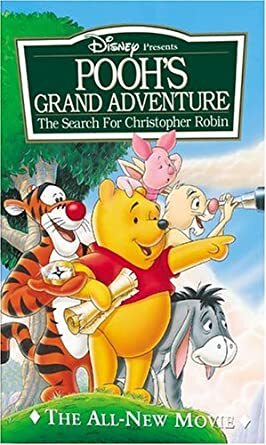
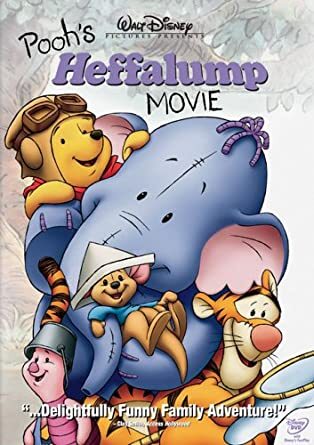



Book Review: NW
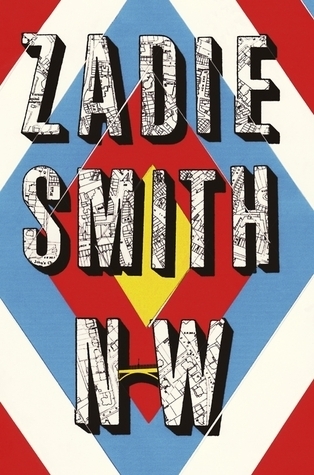
So, the title of this book is written “NW,” but it is said “Northwest.” That’s not that confusing, but just making it clear. And by “Northwest,” we mean an area of London, which is definitely what this book is about (and during a certain time period: it was published in 2012, and if you look at the history that pops up in the peripheral vision of the story, it takes place during the couple decades bridging the twentieth and twenty-first centuries. It is specific. As in, there will be things lost over time and over space on this one. Forty-year-olds from the dodgy end of London are going to relate best. (This is part of Zadie Smith’s oeuvre (am I using that right?), at least in what I have so-far read. London. Classes. Race. During her lifetime.) This isn’t true of all (or even most) literature, but this one has plenty of cultural references that keep it in some ways from being universal. However,
there are things about its style and content that result in one of my readerly friends giving it five stars and a glowing (and highly academic) review. He is neither British nor from NW. The reason it gets lower reviews is that yes, some people sorta hate it. But many people also appreciate it. I fall in the middle.
There isn’t exactly a plot here (see below). Basically, though, NW follows (nonchronologically) two characters, Leah and Keisha, from their dramatic meeting as children through their young adulthood and about to middle-age. They are both from the poorer part of town, but while they both head to the same university, one of them ends up with a wealthy husband, as a barrister (read: lawyer), with kids, in a fancy part of town. The other does not. There are subplots involving a murder, not wanting to have kids, a girl who swindles one of them, and some others that will be spoilers if I say. Actually, the whole thing is a little out there (like dramatic), but Smith had to put some juicy bits in to get readers, amiright?
Call me crazy, but I like a good plot. This book is much more about relationship and socioeconomics than it is about some sort of plot (pinkies up!). It throws itself in the face of conventionality in more than one way, and, well, more modern literature is often like “What? Who cares that humanity has always liked some sort of hero’s journey? We’re past that.” Are we, though? (This is a question I’ve been asking about a lot of books, movies, and series lately.) Smith goes much further, however. She throws out typical plot and usual plot development (like a plot line), deals in antiheroes (talk about that in a moment), and shakes up the whole chapter, paragraph, sentence, POV, etc. thing. This is one of those books that I think will read better if the reader is warned about the structure of the book they are about to read. Otherwise, it can be confusing. Well, it can be confusing either way, but I believe that when you are caught off-guard it can lead to a type of annoying that is going to ruin the book for you, or just have you realize too late that it was the type of book you never would have enjoyed. Separated into four (or is it five?) sections, each section has its own language-structural schtick, but this doesn’t eliminate the possibility of schtick-changing at any point in the telling. Never does Smith revert to what you would expect to see (and mentally hear) on the page, as in indented paragraphs, dialogue in quotation marks, consistent font, etc. And when the reader thinks they sorta understand how to read these undivided back-and-forths and figure out who might be talking and who might be thinking, it changes. There is some stream-of-consciousness going on here, but also some artistic experimentation that I personally don’t think works 100% of the time. Thanks for trying, though? For being brave and expanding the possibilities? It doesn’t go as far as, say, House of Leaves, but read it if you want, or even enjoy, someone to mess around with not only literary presentation but also your reader flow. You’ll need brain power and patience.
And I said we would also talk about antiheroes. I reread White Teeth recently and this is a characteristic of that book, as well. Based on these two book, I would say Smith’s writing is a slowly simmering dysthymia, maybe even depression. I mentioned it in the other review, but there is very little joy, hope, or likeable characters (or any in this one). If one writer might describe the titillation or intimacy of sex, Smith is going to zoom in on the drug use during it, the guilt, the removal of the tampon. Like seriously. This is an actual scene. Some readers love this gritty stuff. How very bohemian of them. I prefer my mundanity (even darkness) with a splash of redemption, please. This is a preference by no means universal, but very common. Don’t expect any heroes, nor to be any better off at the end; expect to be more appalled at everyone’s behavior, actually. Perhaps that is part of the point. Not to be too weird, but I can’t really relate to this. I do lead a nice life but it is not without its struggles and issues. However, these characters are fairly deviant even in their “brightest” moments. I know, I looked it up. This is no more realistic to me than a princess fairy tale, just totally different. Also, for some reason, the cover copy of this book consistently says it is about four people. It is not. It is about two people. Leah and Natalie/Keisha. Other characters come in here and there. Glad we sorted that out.
But Smith is a great writer and her writing is worth reading, at least for readers who don’t mind a challenging book and denser copy. Her writing is actually beautiful, even if it refers to ugly things. She deeply observes and considers, and NW is a bit more mature than White Teeth. Smith impresses you with her wordcraft and then forces you to ask questions about the world and also about literature itself. Certainly, this book could be taught, dissected, likewise considered. While my ADHD was going haywire during the 185 mini-chapter section, the craft is playful even while the story is not. Like an effective comedian (though not funny), Smith’s commentary can be so cutting because it observes that which we all experience in a new and pointed way. While the writing is not very clear, the scenes we see are vibrant with detail, like impressionism. I did fall somewhere in between loving and hating this book, much closer to loving. I enjoyed it. I sometimes sighed in irritation at it. I wished for messages of greater things and a plot I could stick on a diagram (even if revealed to me unconventionally. The truth is, people can’t even agree about the “ending” of this book because it never really says what happened, exactly. I have a feeling there are clues throughout the book, but the language acrobatics detract from us catching them). I had a hard time sticking with it, but I was also entertained and maybe a little educated.
QUOTES
“Leah opens her eyes wide to store the details for Michel, which is one of the things marriage means. Drawn to the wrong details” (p44).
“Nathan Bogle: the very definition of desire for girls who had previously only felt that way about certain fragrant erasers” (p50).
“To live like this you would have to forget everything that came before. How else can you manage?” (p70).
“Mothers are urgently trying to tell something to their daughters, and this urgency is precisely what repels their daughters, forcing them to turn away” (p84).
“Wouldn’t one of the humans have said the word ‘vet’ by now if they did not dear how much money saying ‘vet’ would entail?” (p95).
“Rodney had in his hand an abridged copy of an infamous book by Albert Camus. Both Keisha Blake and Rodney Banks sounded the T and the S in this name, not knowing any better: such are the perils of autodidacticism” (p226).
(p268)
“It’s a good tip for the court: don’t imagine your contempt is invisible. You’ll find out as you mature that life is a two-way mirror” (p284).
“Women come bearing time” (p316).
“She had been eight for a hundred years. She was thirty-four for seven minutes” (p329).
“If you had any real self-respect or self-esteem, argued Natalie, one person asking you to put a cigarette out in a fucking playground would not register as an attack on your precious little ego” (p339).
“Was it possible not only to have contempt for the people who kept time for you? Was it also possible to love them?” (p341).
“She peered over into the pit that separates people who have known intolerable pain from people who haven’t” (p394).
July 14, 2022
Book Review: Me Talk Pretty One Day
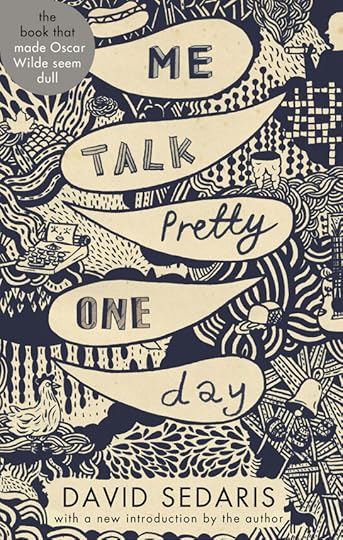
A few months ago, I was looking to join a book club. I shouldn’t have been. It’s not really for me. If anything, I should host book clubs because I know exactly what I want to read for the year (all mapped out in my dot journal) not to mention the rest of my life, so whenever a book club assigns a book not on that comprehensive list, I’m like why am I here? I can’t afford the time for this. On the other hand, I have many book club ideas, some of them already listed on The Starving Artist. Soon, I’ll be bringing all those ideas together for you. Wait and see. Anyhow, I was looking for a book club even though I shouldn’t have been: trying to crawl my way out of the Pandemic hole. After joining any number of book groups that offered book clubs and playing around with the idea of actually joining, I came across a subset of a book club on Goodreads: Under the 2022 Reading Challenge (which I set for myself every year; I am currently 13 titles behind pace), in the Annual Challenges category, is the Clear the Shelves book club. Now, it’s not MUCH of a club. And it’s not especially easy to manage, either (you have to write a message updating your original message every time you finish a post, that is, after you find it again). But how perfect could this be?! The point is to set your own reading list with the stipulation that these books have to be on your bookshelf already and I have hundreds of books to catch up on (with a read or re-read). I easily typed in 50 titles and said I would get to work at the end of the school year.
I just finished #4 of 50, Me Talk Pretty One Day by David Sedaris. I admit that I had already started some of the books on my list, though I knew this when I set my goal of 50, so… I started Me Talk Pretty at a writing residency, which means that I started it before the Pandemic, in the fall of 2019. I read less than half of it in the evenings, after getting into bed. Now, I want to warn you that one of the genres that I am least qualified to review is comedy. I have read Bridget Jones’ Diary and Haven Kimmel’s memoirs. And, if we dig hard, probably one or two other books that might fit into this category as well as something else (like the sci-fi Hitchhiker’s Guide to the Galaxy). I made the best-ofs comedy book list because I love to laugh. Stuck on this first title for a few years, it’s not going particularly well. And, like I said, not an expert.
Returning to Me Talk Pretty One Day as a break in the middle of five Zadie Smith titles (they can be a little bleak), I enjoyed and appreciated it more than I remembered. I think I was frustrated at the lack of lol-ing. Still, not much more than a snort or a snuffle, but a few lols before the end. And a few times I just had to read the paragraph out loud because my husband was there and because he would appreciate the satire and because he would snort. Note: published in 2000, Me Talk Pretty has some interesting/disturbing moments of foresight, like the less important one about eating full meals in movie theaters. My husband questions Sedaris’s claims about his low IQ, which he’d heard about without reading the book (we’re long-time NPR listeners). How can you be as astute, observant, and capable of comedy (and writing) without a decently high IQ? Because while being self-absorbed and un-cooly quirky, Sedaris is really all the time making fun of himself and those around him. That’s his job as a comedic essayist.
Which is what this book is. A collection of essays in some sort of life-order. We read as Sedaris, a New Yorker from a childhood in North Carolina (the Triangle, where I live) finds love and moves to Paris. It’s about growing up and family, it’s about being gay (a little), it’s about learning a new culture (and language), it’s about being unapologetic about who you are. I found it to be far more story-telling than stand-up. Definitely there are funny moments and like with most funny guys, Sedaris doesn’t say anything straight. But most of the stories were more amusing than hilarious. Like all good comedy, it makes you think about life, your life, the world, the modern world, but only with so much har-har-ing. There is a dark seriousness here, too. Well, maybe not too serious. More just dark. Dark humor. Or just humor of the mundane. Sedaris says things in a funny way, but it’s more like dysthymic sarcasm, which can be a kind of funny. Read:
“The word phobic has its place when properly used, but lately it’s been declawed by the pompous insistence that most animosity is based upon fear rather than loathing. No credit is given for distinguishing between these two very different emotions. I fear snakes. I hate computers. My hatred is entrenched, and I nourish it daily. I’s comfortable with it, and no community outreach program will change my mind” (p145).
“Every day we’re told that we live in the greatest country on earth. And it’s always stated as an undeniable fact: Leos are born between July 23 and August 22, fitted queen-size sheets measure sixty by eighty inches, and America is the greatest country on earth. Having grown up with this in our ears, it’s startling to realize that other countries have nationalistic slogans of their own, none of which are ‘We’re number two!’” (p157).
So I guess it depends on your sense of humor, but Me Talk Pretty One Day is one of the most-oft chart-topping humor books, so if you want to read and laugh, then this is a book to put on your reading list. Sedaris is also considered one of the top humor writers of our time and has a number of other things to read if you enjoy this one: Barrel Fever, Naked, Holidays on Ice, Dress Your Family in Corduroy and Denim, When You Are Engulfed in Flames, Squirrel Seeks Chipmunk, Let’s Explore Diabetes with Owls, Theft by Finding, and Calypso. He’s been a staple of The New Yorker, NPR, and the BBC, which means, among other things, that he is as talented at speaking his work as writing it. I also want to mention his sister Amy Sedaris, only one of five siblings, but the one he talks about the most and incidentally the most famous one. (They do collaborate.) She’s a comedian and actor and I know her from Elf, The Unbreakable Kimmy Schmidt, and Chicken Little. You probably do, too.
And this is why I qualified this review: I’m not very versed in comedy books, yet. Generally (referring to the three I’ve read), they don’t make you pee your pants, but they make you think and snicker. This is a comedy must-read and I basically enjoyed reading it. Would I read more of Sedaris? Likely. Will I enjoy it when I hear him on air? Yes. And will I keep making my way through the comedy book list? Yes, but hopefully a little faster than one every four years.
July 12, 2022
Book Review Plus: Breakfast at Tiffany’s
After reading In Cold Blood, I felt interested in reading Truman Capote’s other most-famous work, Breakfast at Tiffany’s. For one thing, I was intrigued by his strange career of seemingly never landing on the same genre twice. For another, this is my experience with Breakfast at Tiffany’s: In the nineties, the song “Breakfast at Tiffany’s” by Deep Blue Something was one of my favorites of the decade. It was a song my old boyfriend and I used to sing along to in the car, having good times and bonding over music. I still like this song and have it on my Spotify playlist, have considered singing it at cafes. Shortly after marrying (in 2001), my husband and I discovered we were both interested in the movie—me because of the song (which refers to “Breakfast at Tiffany’s” as a movie and says nothing about it except that the singer and some girl “really like[d] it” so that’s “what [they]’ve got” in common). Kevin was interested because he had never seen the movie and he was super into movies. Breakfast at Tiffany’s was a classic. We watched it aaaaand we sorta hated it. It would not be something “we’ve got.” I’ll talk more about this later. But then years later I discovered that Breakfast at Tiffany’s wasn’t just a cult classic movie, but a novella written by Truman Capote, and, when reading In Cold Blood and watching the movie Capote, I learned that this book was famous before the movie. This it is considered one of his best works. Huh.
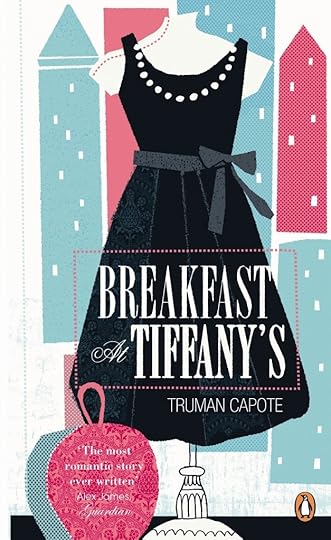 Image from Amazon.com
Image from Amazon.comWritten in the 60s, Breakfast at Tiffany’s is somewhere between a short story and a novella, and the way it is most often found nowadays is combined with three short stories in book form. (We’ll also get to that a little later.) The story goes like this: as unnamed narrator (who we understand to be very similar to Capote) lives in an apartment complex in New York City in the 1940s and is a struggling/beginning writer. His downstairs neighbor enters his life when she shifts from torturing an upstairs neighbor to ringing the narrator’s buzzer at all times of the day and night because she can’t be bothered to keep track of her keys and does keep an unconventional schedule. Fortunately, this woman is young, startlingly beautiful, and also alluring in quantities that contradict her obnoxious habits and silly life decisions. Thus we meet Holly Golightly, a character that would become a cultural icon, first through this story and then through the portrayal by Audrey Hepburn.
The narrator spends the rest of the story interacting with Holly on and off as time passes, as a friend, a sort of detective, occasionally a frenemy, and always surprised by her zest, her independence, her determination, and her pinball course through life. She calls him “Fred” because he reminds her of her brother and he slowly learns who she really is, where she has really come from, and where she is trying to get to. Hollywood is involved, the mafia, the high life of the City, politicians, the rural South, parties, the cops, and of course, Tiffany’s (though very little, actually). There is never any concern for romance, because the narrator is gay and also because the story opens up briefly in the story-future, where the narrator visits an old hang-out to talk news of the now globe-trotting, elusive Holly. Golightly really does grow on you, as does the narrator, though the story is light and at times appalling (because of everyone’s behavior), and it maybe doesn’t lean hard enough on the plot for some readers.
I have to agree with an article found about Holly Golightly: it is combination of the book and movie that have made her an icon. It’s like, I wouldn’t have really thought too much about either of them, but together you just really pull for Holly. Maybe even admire her, which many people have done. But there are issues with Holly as an idol. Capote may have managed to portray (with Hepburn) a charm that he claims for his special character—against all odds—but she is still not particularly feminist by today’s standards, at least in some ways. I do take issue with those who say she is a “call girl” (read: prostitute). That is reductionist/incorrect. She is far more complicated than that, though I think “gold-digger” would be accurate. She’s also just a hurt and broken kid running from her problems. Still, despite her frivolity and levity, you pull for her. She is capital-C charming.
I can’t recommend this book very strongly, but I enjoyed reading it and then watching the movie. If you are into classic books and/or cinema, admire Audrey Hepburn or have a thing for cult classics, or if you are keen on the mid-century or studying early feminism, then these are all reasons to pick up a copy of each and work your way (quickly) through them. I would read first and then watch.
MOVIE:
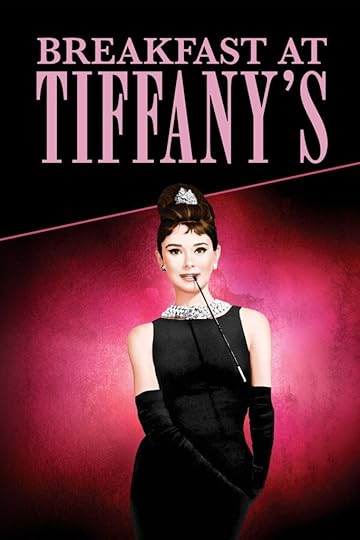
So the movie Breakfast at Tiffany’s takes place in the 60s instead of the 40s. That was when it was made, though it feels like an exaggeration of the 60s, perhaps because of the hectic, extra-large lifestyle of the characters. This is city life: wealthy, powerful, New York City life in the 60s—something the masses might have been gaping at and desiring, but not really life for most. Anyhoo, the story changes very little with the time change, but there are a lot of other changes made to the story, too. Big ones. For one (and I think because of the reasons I just gave above about the time period and “normal” people), the narrator–now called Paul Varjak–‘s sexual orientation is changed. This means that he is given a whole new situation and subplot which is remarkably like Holly’s. (He is a “kept man.”) This also means that this story is now a romance (instead of a tragedy). Remarkably, Holly is still Holly and Hepburn plays the part perfectly. She is Holly. And Peppard plays an attractive and alluring Paul, though his character is not the narrator of the book.
Before I conclude, however, I have to warn you strongly that Mickey Rooney’s neighbor, Mr. Yunioshi, is one of the most problematic portrayals of a minority in American cinematic history. Of course, Mickey Rooney is not Japanese nor looks Japanese, so they gave him these crazy prosthetic teeth, maybe taped his eyes/shot him from below?, and gave him a horrendous and exaggerated accent. His part is slapstick (which is not in sync with the rest of the movie) but today’s caring viewer will NOT find any of it funny. It’s appalling, actually, and should be offensive, as he bumbles his way through a wildly stereotyped interpretation of a Japanese man. You can take it as historically instructive or you can refuse to watch the movie. I hope it at least grates on you as you watch it. Maybe talk it out. Celebrate the way this wouldn’t fly today and how we can get even better at cultural sensitivity.
Besides Mr. Yunioshi, poor guy, I did enjoy the movie the second time around, either because I had read the book or because it’s a couple decades later. My conclusion is the same as above: if you think this is something you might particularly enjoy, then read the story first and then watch the movie.
(The Grass Harp and Music for Chameleons also look like interesting reads.)
QUOTES:
“You can love somebody without it being like that. You keep them a stranger, a stranger who’s a friend” (p9).
“Reading dreams. That’s what started her walking down the road” (p55).
“If you let yourself love a wild thing. You’ll end up looking at the sky” (p59).
“For I was in love with her. Just as I’d once been in love with my mother’s elderly [Black] cook and a postman who let me follow him on his rounds and a whole family named McKendrick. That category of love generates jealousy, too” (p60).
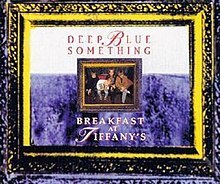 Image from Wikipedia.com
Image from Wikipedia.comSONG:
I already told you I like this song by Deep Blue Something and have liked it since it dropped. The band’s only popular song, stateside, I heard it often on the alternative rock station in the nineties. It’s a bit light and pop-y, but it’s fun to sing along to and even dance around in the kitchen to. People enjoyed it; critics were split.
BONUS REVIEW: A COUPLE SHORTS
As I said, copies of Breakfast at Tiffany’s often include three short stories with the novella. My copy doesn’t even say this on the cover, however, they are there. I already reviewed “A Christmas Memory” HERE, but following are my speed-reviews of the other two shorts.
HOUSE OF FLOWERS
 Image from Goodreads.com
Image from Goodreads.com“How do you feel if you’re in love? she asked. Ah, said Rosita with swooning eyes, you feel as though pepper has been sprinkled on your heart, as though tiny fish are swimming in your veins.”
Whew! This is a doozy. Written beautifully both on the levels of language and story. I had no idea what to expect and I might leave it that way for you, but I’ll tell you it is about a young, beautiful, Haitian prostitute who is looking for love. There are moments of beauty, horror, and sadness and deft description. It is basically unlike any story I’ve ever read, very memorable. If you enjoy short stories, read this one. There aren’t really any gimmicks (except, I suppose, turning conventional morality on its head), but the story and writing are compelling.
A DIAMOND GUITAR
“Now, recognizing his loneliness, he felt alive. He had not wanted to be alive. To be alive was to remember brown rivers where the fish run, and sunlight on a lady’s hair.”
Hm. It’s lush, like much of what Capote writes, and ultimately about people, especially people with things on their conscience. It’s a good story, I just didn’t love it. About a man serving a life sentence in a work prison in the pine forests of Alabama, and the new kid who arrives with a glass-studded guitar. A much shorter version of Of Mice and Men, or at least comparisons could be made.
July 11, 2022
Book Review: White Teeth
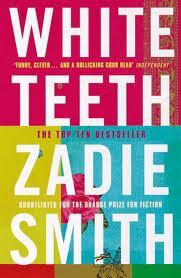
This was one of the books that I read in my modern literature class in college in the late nineties. I hadn’t read much literary fiction before then, and I loved many of the books in that class. This one, White Teeth by Zadie Smith, was new and was soaring in popularity, especially since the British author was so young and new on the scene. The characters were a little reprobate for my previous experience, but they were also so interesting: British all—a Bengali man and a white man (army buddies of sorts) marry a Bengali woman and a Jamaican woman twenty years their juniors. Each couple becomes pregnant—one with a girl and the other with twin boys. The story covers four generations of the families, centering on the stories (in quarters) of Archie (dad #1), Samad (dad #2), Irie (daughter), and Millat and Magid (twin sons).
One of my favorite things that a story can do (excuse my mixed metaphors) is weave many different ropes of stories and then smash them all together at the end in one big explosion of revelations and happenings. That is probably the thing that I most enjoyed about White Teeth and why I said for decades after reading it that it was one of my favorite books. It has proven interesting to re-read books from my childhood, teen years, and even young adult years. I often do not have the same opinion of them later in life as I did before. (Some exceptions have been The Things They Carried and Anne of Green Gables.) So you might know what I am going to say next: I just (finally) re-read White Teeth and I didn’t love the book the way I did the first time. But I still liked it, quite a big bit.
Not that the story contains some sort of straightforward plot. Smith does work the many pieces of plot into a compelling, coherent whole in the end, but for half the book you have no idea where anything is going and you’re just learning about individuals through what feels like fairly random stories. The point of this book, no matter how you dice it up, is the point of (I think) much of Smith’s body of work—the immigrant life in modern(ish) London. Smith has become a sort of expert in both strong, interesting voice and also in representing the newer immigrants of Willesden and surrounding boroughs, the boroughs that appear to be the have-nots and yet the place where immigrant dreams are pinned. She is rather deft at portraying the Begali/Pakistani/Indian characters, the Jamaican characters, the Muslim characters, and indeed the more English of the English (the white ones, the ones who were immigrants more generations back: the Irish, the Polish who have changed their last names and now act like theirs is the inheritance).
It’s New Year’s Eve, 1975, the date that the Jehovah’s Witnesses have set for the end of the world and that Archie Jones has chosen to end his life. Neither plans are destined to succeed, and—in a chance meeting that spares Archie’s life in one of many flitting and originally unseen interactions of characters—set in motion almost twenty years of story that will bring no less than four groups and some twenty characters to a dramatic head at the grand opening of the Future Mouse exhibit. It’s also the moment that Samad Miah Iqbal realizes that forty years of history with his best friend have been built on a lie while their children’s lives are suddenly, inextricably connected, leaving one character to decide the narrative for the next generations. And, if you are an especially astute reader, you’ll find many other smaller connections between characters and even generations.
All this interconnection and random-stories-that-lead-to-one-place-while-also-developing-characters: that’s what I so enjoy about White Teeth. And I’m lost in this place and these times, suddenly someone I have never been in a visceral sense, which is what I love about reading. But I already said all that. What bothered me this time was three-fold: first, Smith’s famous “voice” and perspective are a little immature. I’m going to guess this has changed with her later books (which I’ll be reading over the next few weeks). At the time of my first reading, I was about Smith’s age, so it is not surprising that I would have found the feel familiar and not immature. I mean, Smith was insightful for her age, to be sure, but reading Teeth in my forties, there is something about the tone and the writing that highlights her own inexperience and youthfulness. I can hardly explain what I mean, but there were many passages where I felt this way. Second, I didn’t enjoy being with any of the characters, though I think I could have had Smith not painted them all with only the ugly colors in the paintbox. Does that make sense? I know a serious reader is not supposed to care if she “likes” any of the characters, but I like to like some of them, and what got in the way here was the negative way the characters were portrayed as opposed to their actual humanity. Speaking of which, third, the whole thing was quite depressing. And depraved. White Teeth is a book of antiheroes. Everybody’s despicable to the point that no one even has good intentions or even loves their own kids properly. This might be part of the point—a realistic portrayal of immigrant life in London, un-romanticizing the idea while exposing the racism from the well-intentioned to the violent—but I also am a sucker for some hope in a great book.
In the end, I would recommend White Teeth and there are some great moments that I just plain enjoy. The characters and the story are compelling, as well as many of the ideas, and Zadie Smith is a great writer, which we’ve all accepted (though she appears to have her limits, twenty years later). Don’t go looking for likeable characters or hope, though you might be able to winkle out some of that, here, if you really try. You want to read a classic of the twentieth—or is it twenty-first (it was published in January 2000)—century? This is one you shouldn’t miss.
MINISERIES:
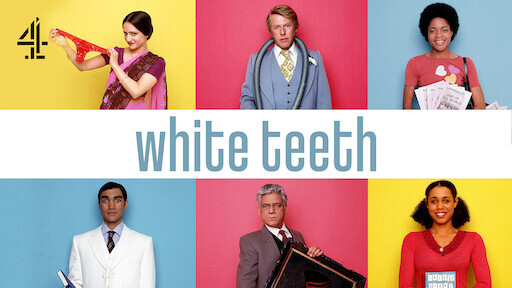 Image from Netflix.com
Image from Netflix.comI found this little-known, Channel 9, 4-part miniseries from shortly after the publication of the book. It just happened to be available on the Roku Channel (!). I spoke of the antiheroes in the book review, but the only character who I actually found myself respecting even a little by the end was Irie. In the book, there are four sections, and the third one is centered on Irie. In the miniseries, her section (episode) gets given to one of the Iqbal twins (instead of them having only one). Not sure why they did that, as Irie still remains central to the story… actually, I do. With the aging of the characters, it was easier to cut out the middle years, and with one actor playing both teenage twins, they couldn’t easily share a section, at least on camera. It was also strange of the miniseries to introduce the Chalfens so early in the family histories (and change their name to Malfen). Why? I couldn’t figure out a reason. There were a handful of characters who didn’t fit the physical descriptions in ways that make things nonsensical (like Samad not being super handsome and Alsana not gaining weight as she aged) and there were some awkward aging-casting choices, too (leading to children and parents played by actors only a few years off from each other). Still, besides these things, I found the miniseries to be a good complement to the book, well-acted and fun to have some visualization. Much of it is the same, at least in spirit. I would recommend watching it after the read, if you can find a copy, but only after reading the book. And don’t bother trying to use it to take a test: it’s not similar enough.
QUOTES:
“Bloody hindsight, thought Archie. It’s always 20/20” (p11).
“The principles of Christianity and Sod’s Law (also known as Murphy’s Law) are the same: everything happens to me, for me (p37).
“For ridding oneself of faith is like boiling seawater to retrieve the salt—something is gained but something is lost” (p37).
“It was during this time that Archie learned the true power of do-it-yourself, how it uses a hammer and nails to replace nouns and adjectives…” (p79).
“…when the male organ of a man stands erect, two thirds of his intellect goes away,’ said the Alim, shaking his head. ‘And one third of his religion’” (p116).
“Oh, there was a certain pleasure. And don’t ever underestimate people, don’t ever underestimate the pleasure they receive from viewing pain that is not their own, from delivering bad news, watching bombs fall on television, from listening to stifled sobs from the other end of the telephone line. Pain by itself is just Pain. But Pain + Distance can = entertainment, voyeurism, human interest, cinema verite…” (p177).
“’It just goes to show,’ said Alsana, revealing her English tongue, ‘you go back and back and back and its still easier to find the correct Hoover bag than to find one pure person, one pure faith, on the globe. Do you think anybody is English? Really English? It’s a fairy tale!’” (p196).
“She was that age. Whatever she said burst like genius into centuries of silence. Whatever she touched was the first stroke of its kind. Whatever she believed was not formed by faith but carved from certainty. Whatever she thought was the first time such a thought had ever been thunk” (p198).
“No better historians, no better experts in the world than Archie and Samad when it came to The Postwar Reconstruction and Growth of O’Connell’s Poolroom” (p204).
“Why tell an old man that there can be smoke without fire as surely as there are deep wounds that draw no blood?” (p209).
“The truth does not depend on what you read” (p213).
“One was impressed by the Jamaican’s faith but despairing of his work ethic and education. Vice versa, one admired the Englishman’s work ethic and education but despaired of his poorly kept faith” (p253).
“Irie thought of her own parents, whose touches were now virtual, existing only in the absences where both sets of fingers had previously been: the remote-control, the biscuit-tin lid, the light switches” (p267).
“Children with first and last names on a direct collision course” (p271).
“Four months in the life of a seventeen-year-old is the stuff of swings and roundabouts; Stones fans into Beatles fans, Tories into Liberal Democrats and back again, vinyl junkies to CD freaks. Never again in your life do you possess the capacity for such total personality overhaul” (p334).
“…it feels to me like you make a devil’s pact when you walk into this country …. In a place where you are never welcomed, only tolerated. Just tolerated. Like you are an animal finally housebroken” (p336).
“’Dat’s always bin de problem wid de women in dis family. Somebody always tryin’ to heducate them about something, pretendin’ it all about learnin’ when it all about a battle of de wills” (p338).
“…involved… An enormous web you spin to catch yourself” (p363).
“Greeting cards routinely tell us everybody deserves love. No. Everybody deserves clean water. Not everybody deserves love all the time” (p382).
“But it wasn’t calm so much as inertia” (p411).
“New Years come and go, but no amount of resolutions seem to change the fact that there are bad blokes. There were always plenty of bad blokes” (p427).
“He was so unfazed by it. Because there aren’t any alien objects or events anymore, just as there aren’t any sacred ones. It’s all so familiar. It’s all on TV” (p436).
“Only those who are sufficiently strong and well disposed to life to affirm it—even if it will just keep on repeating—have what it takes to endure the worst blackness” (p446).



